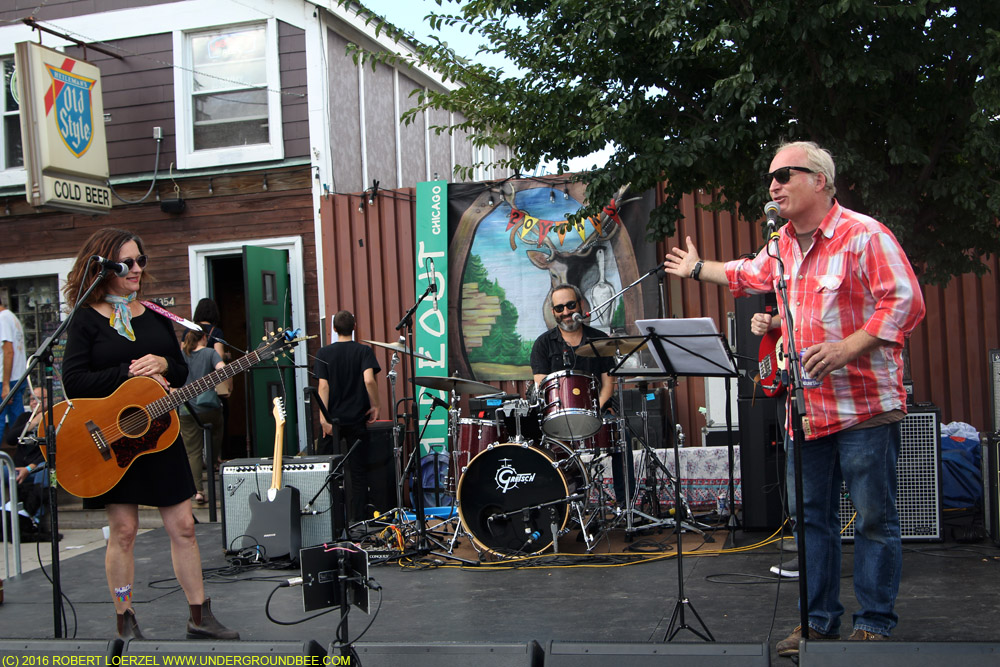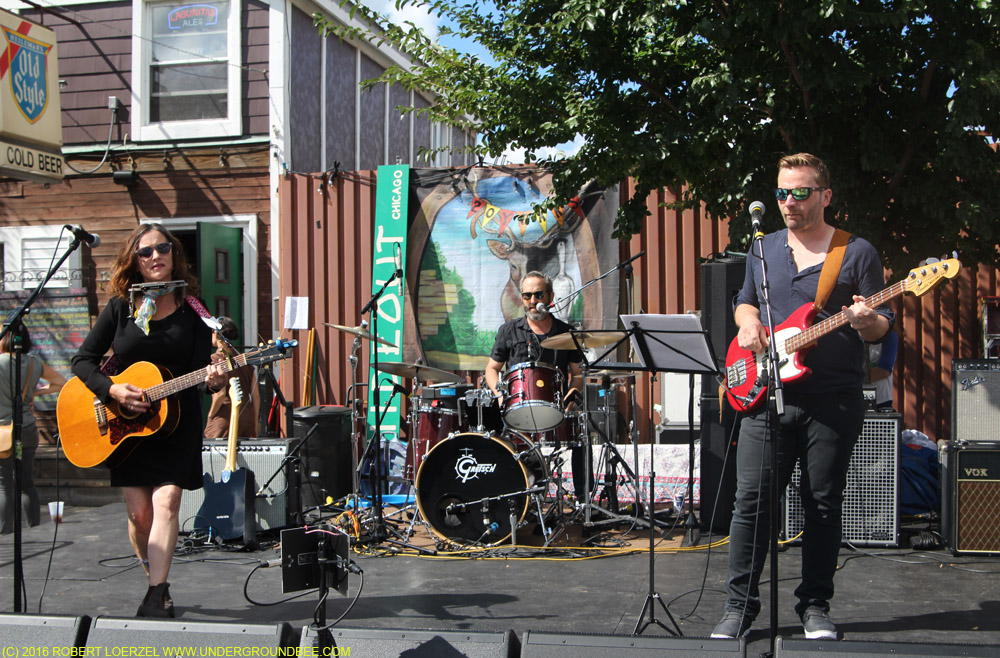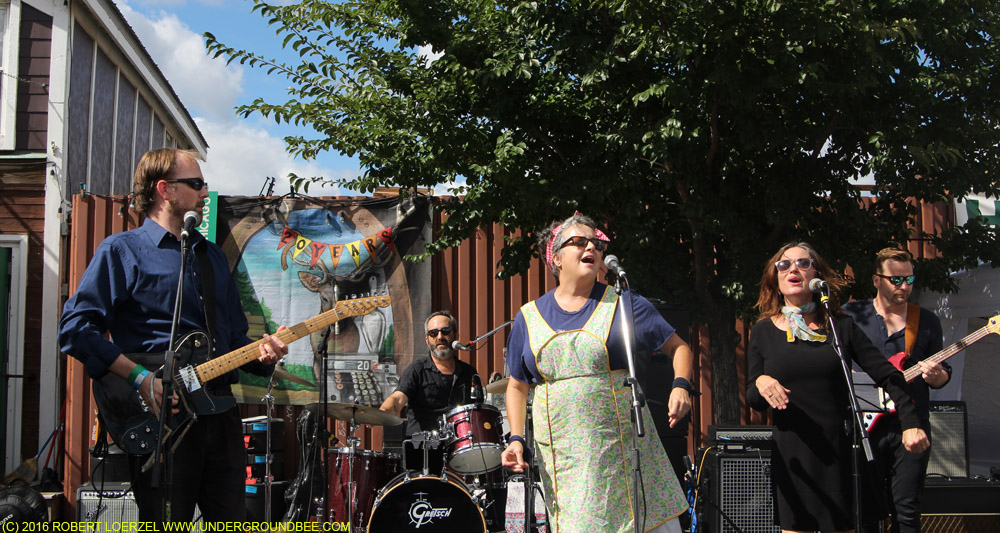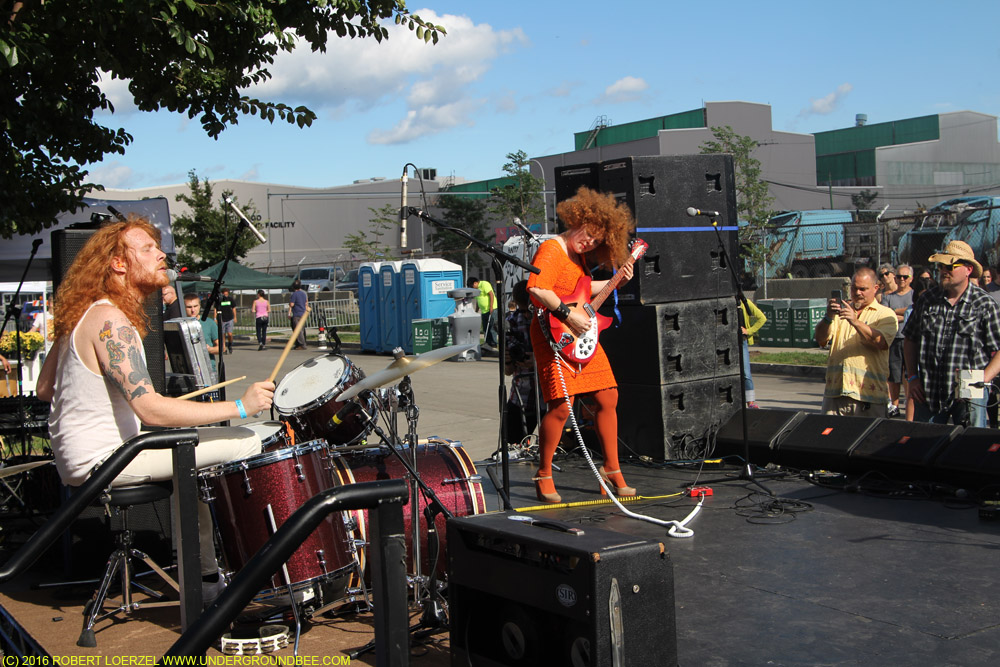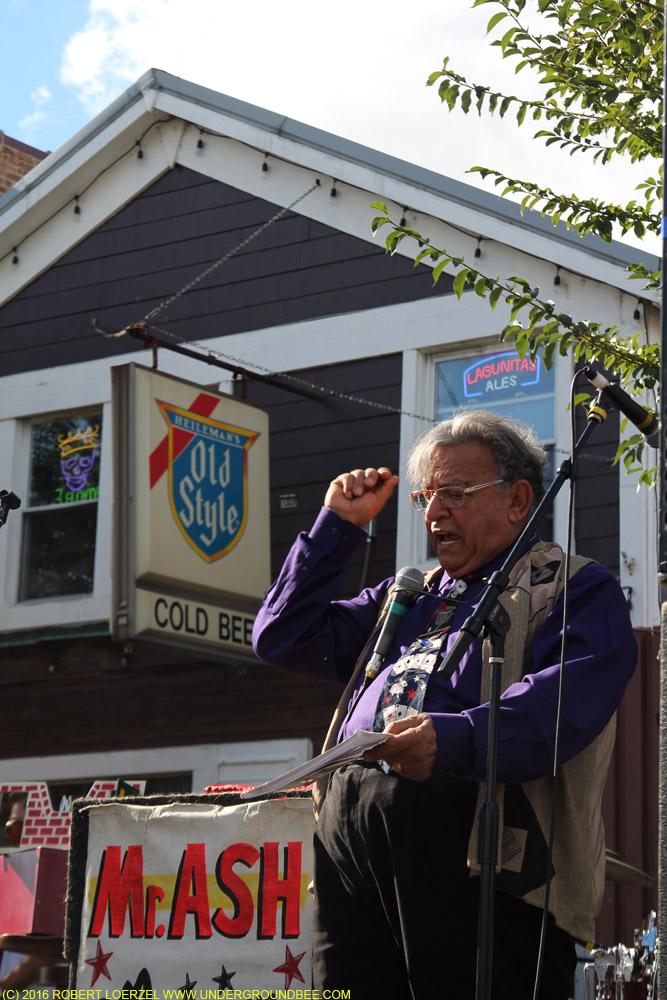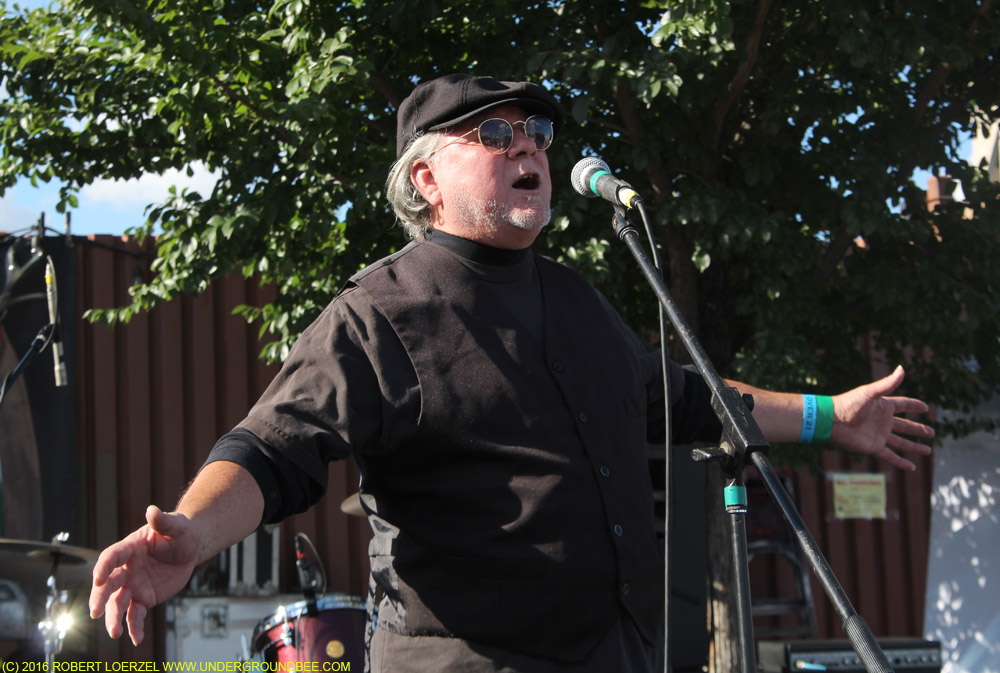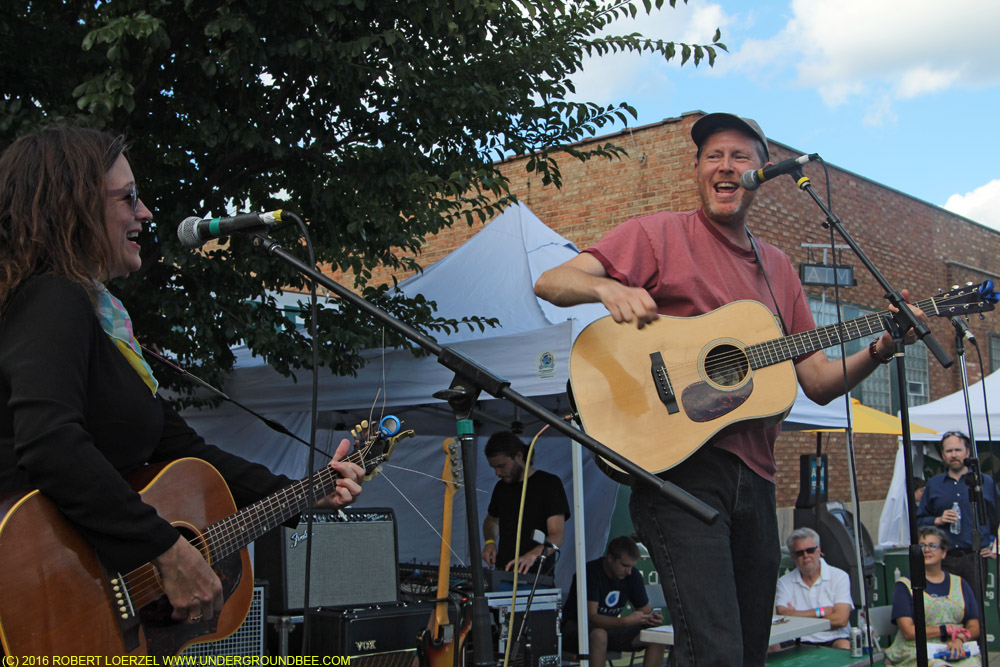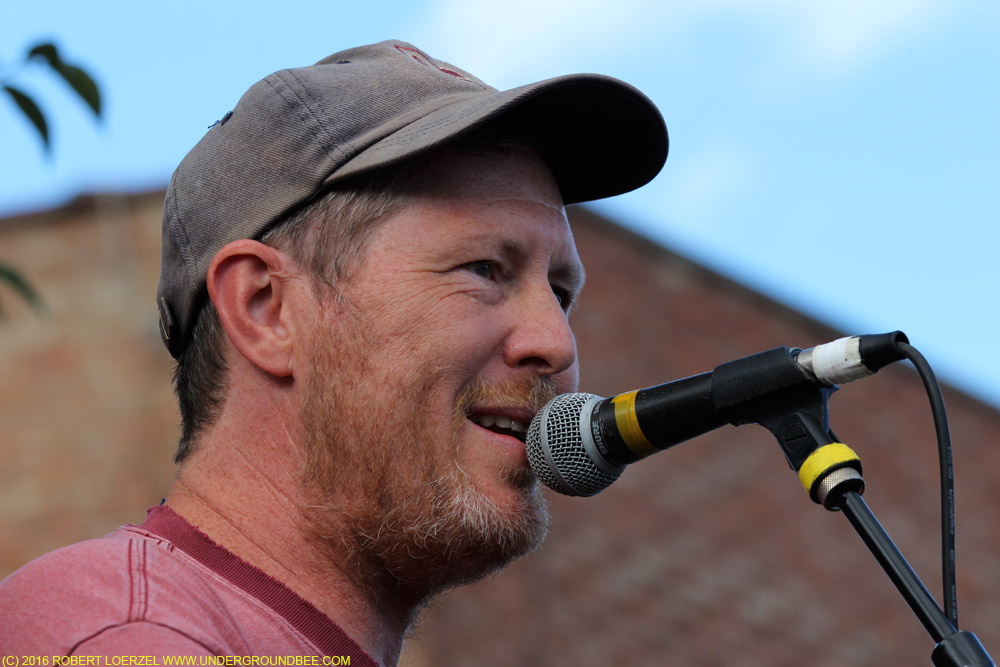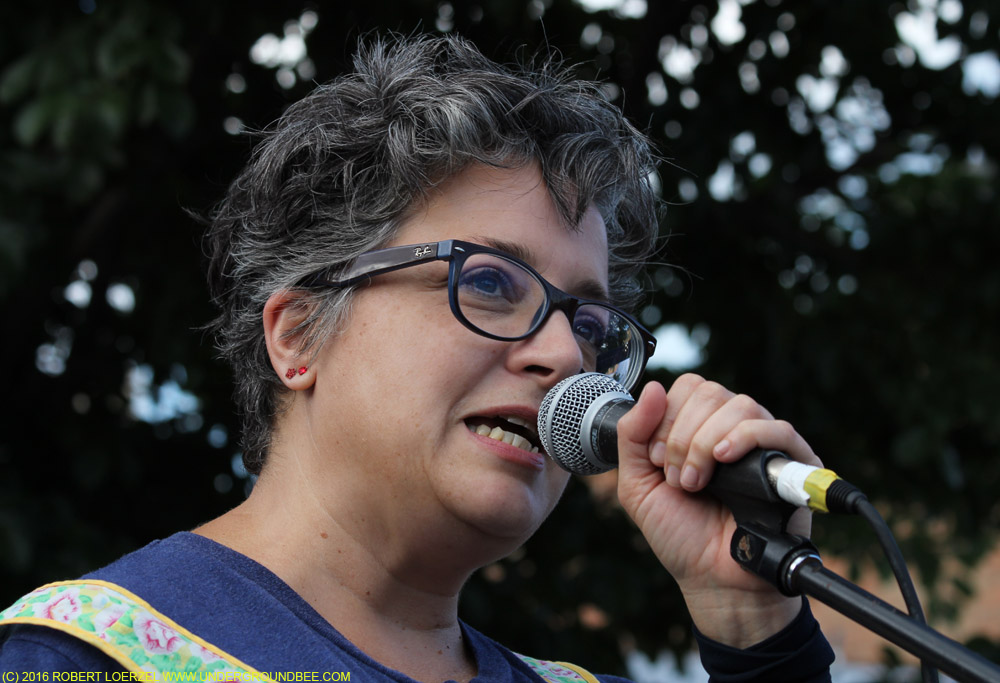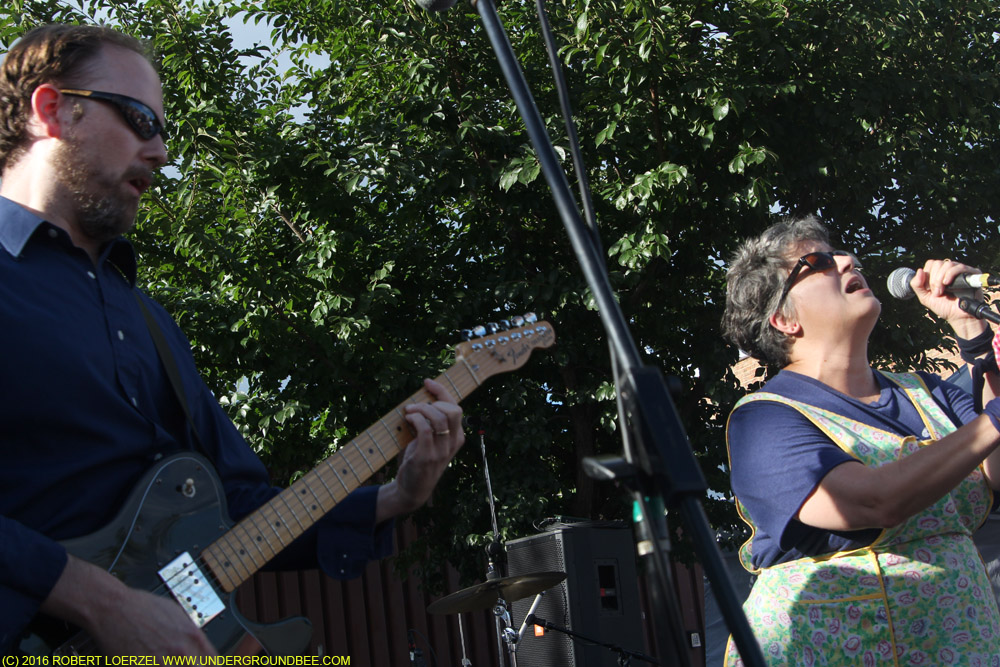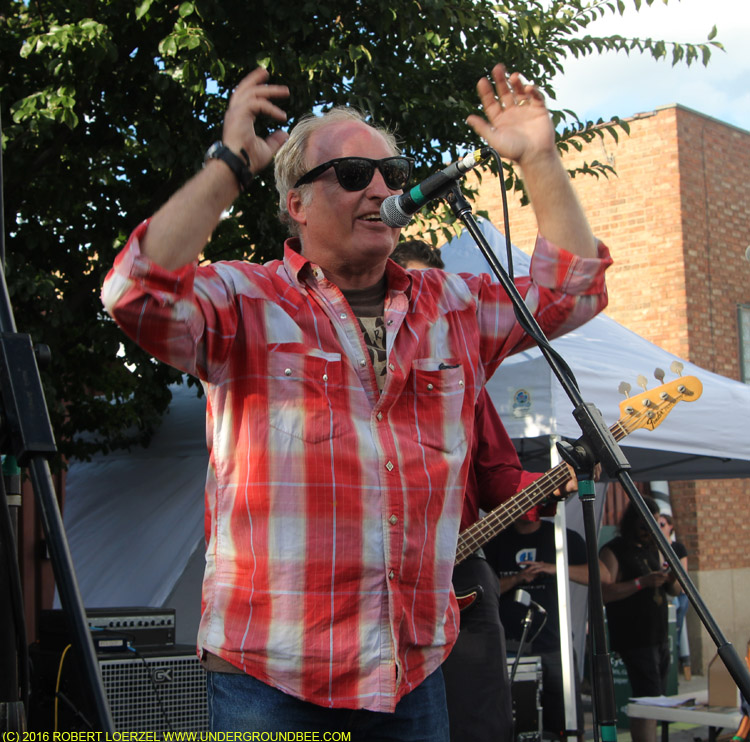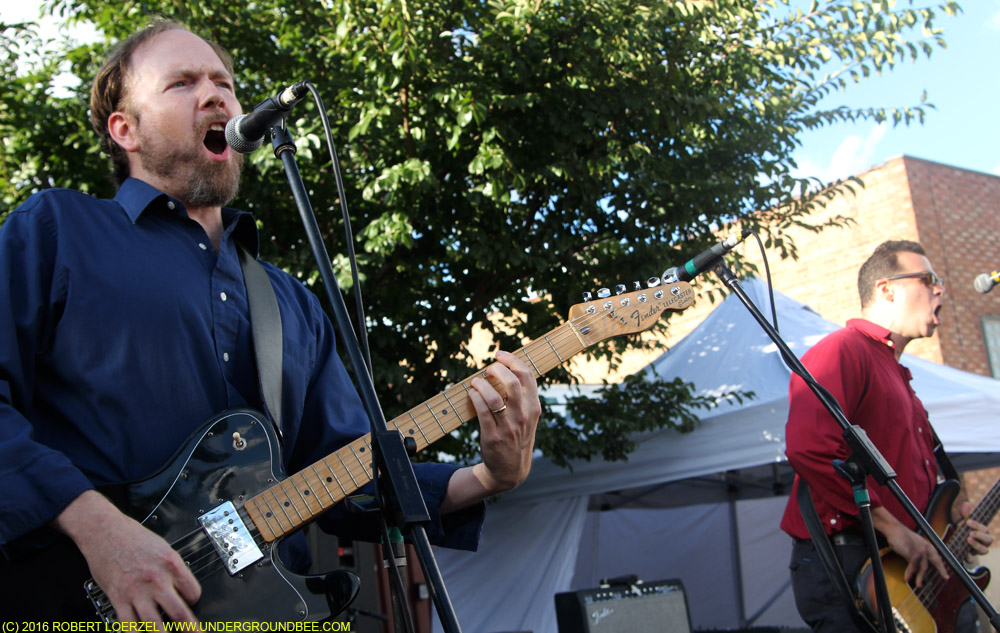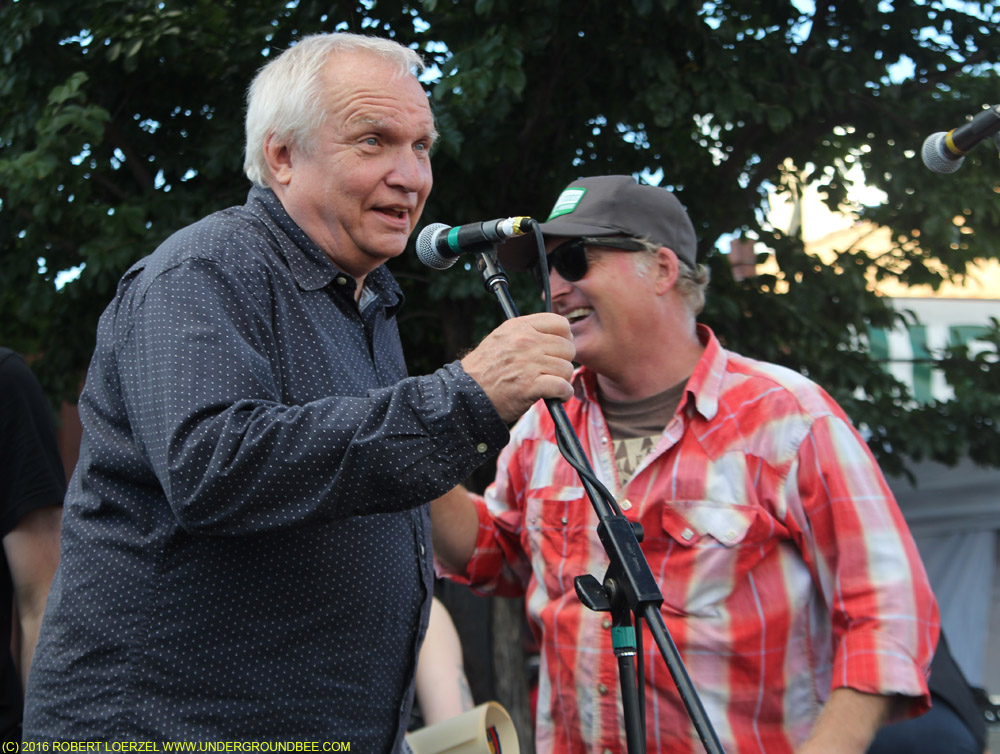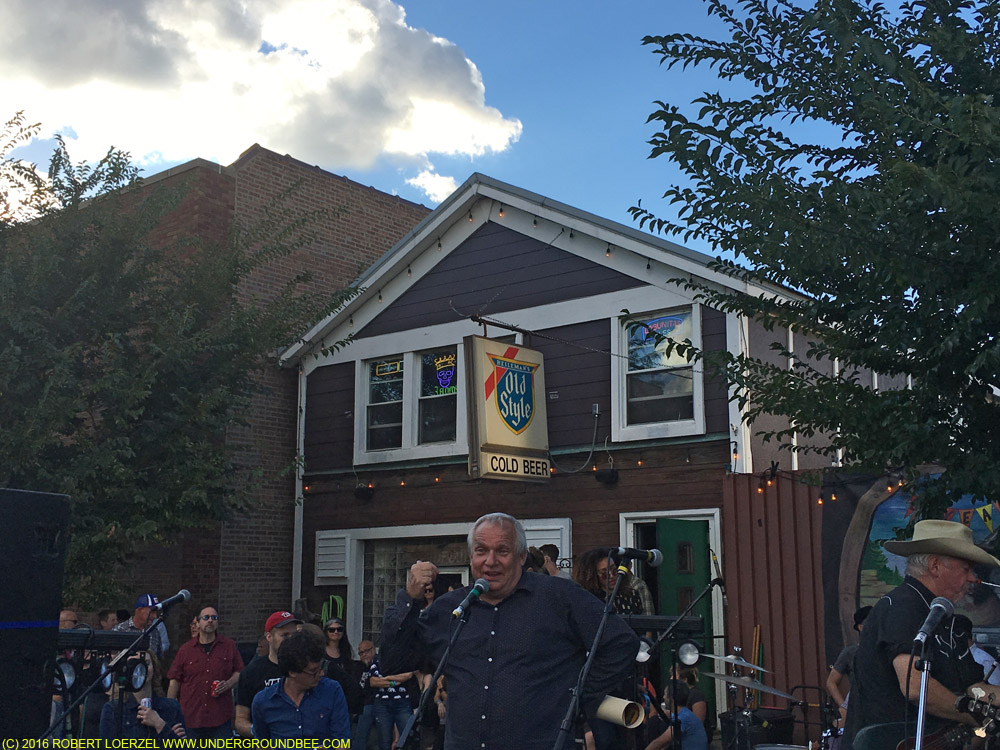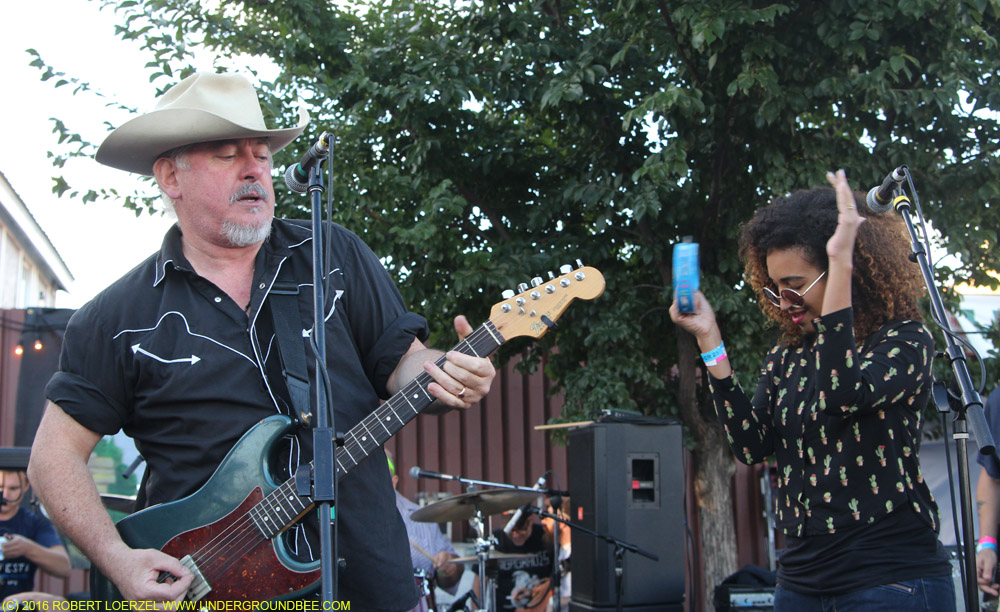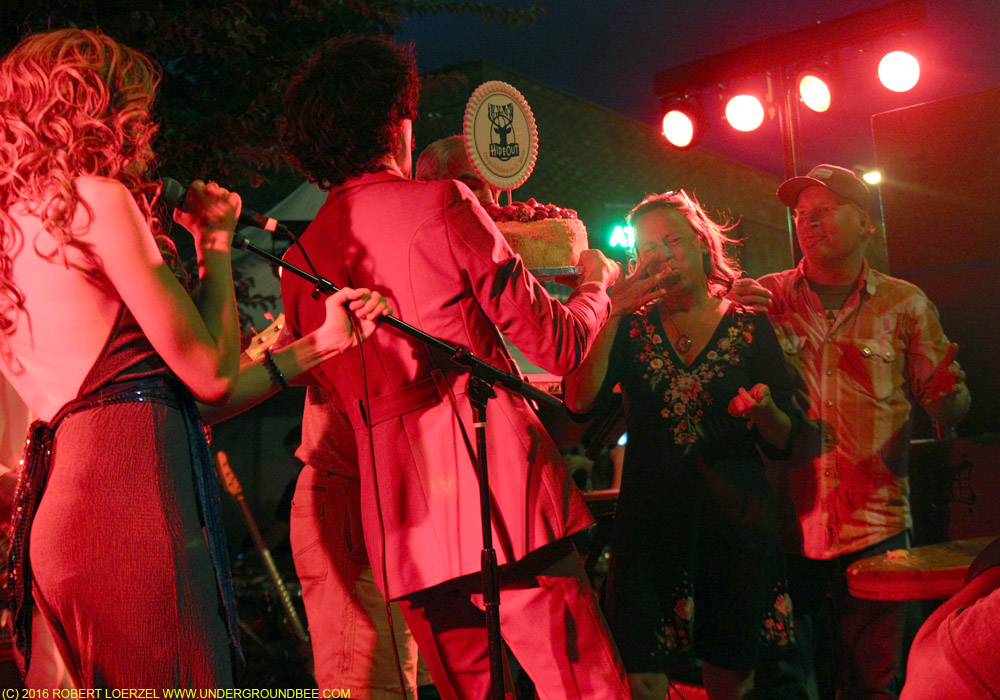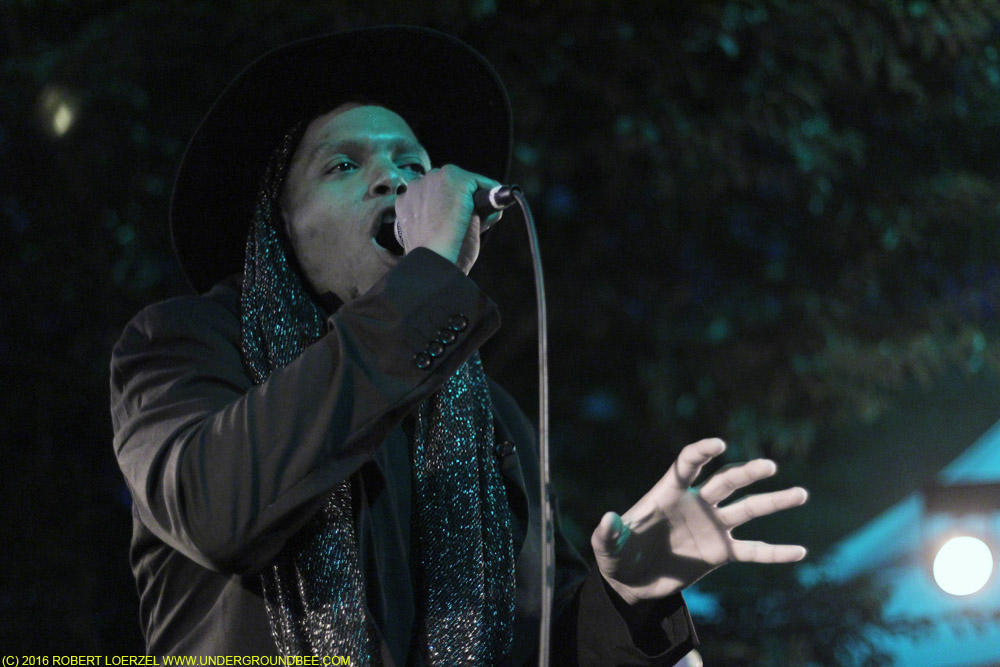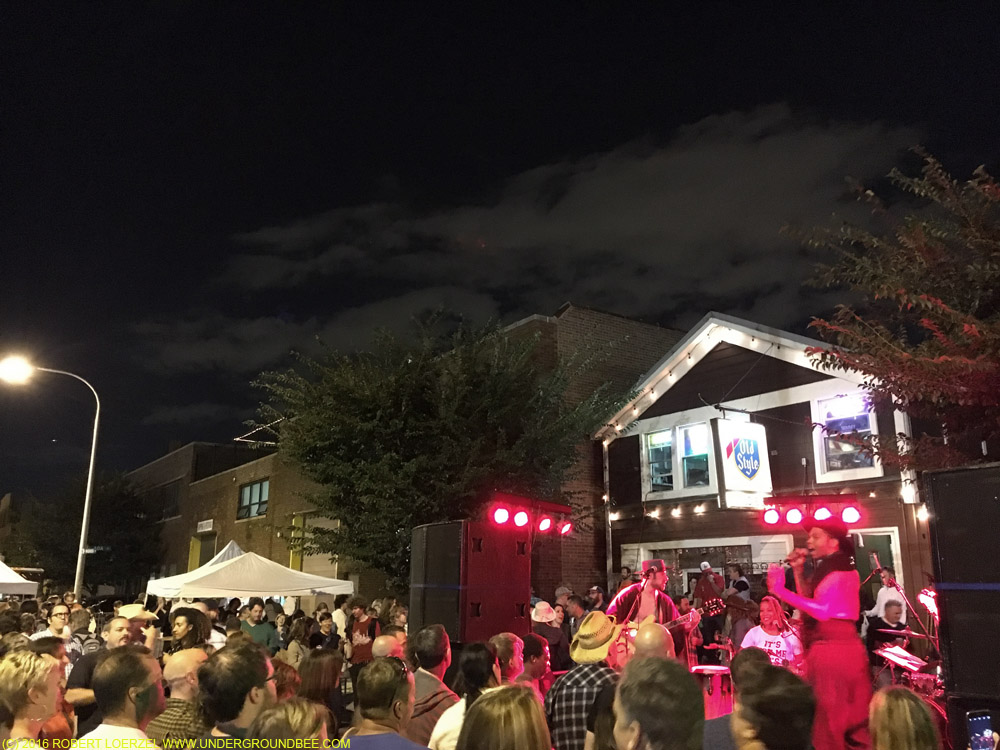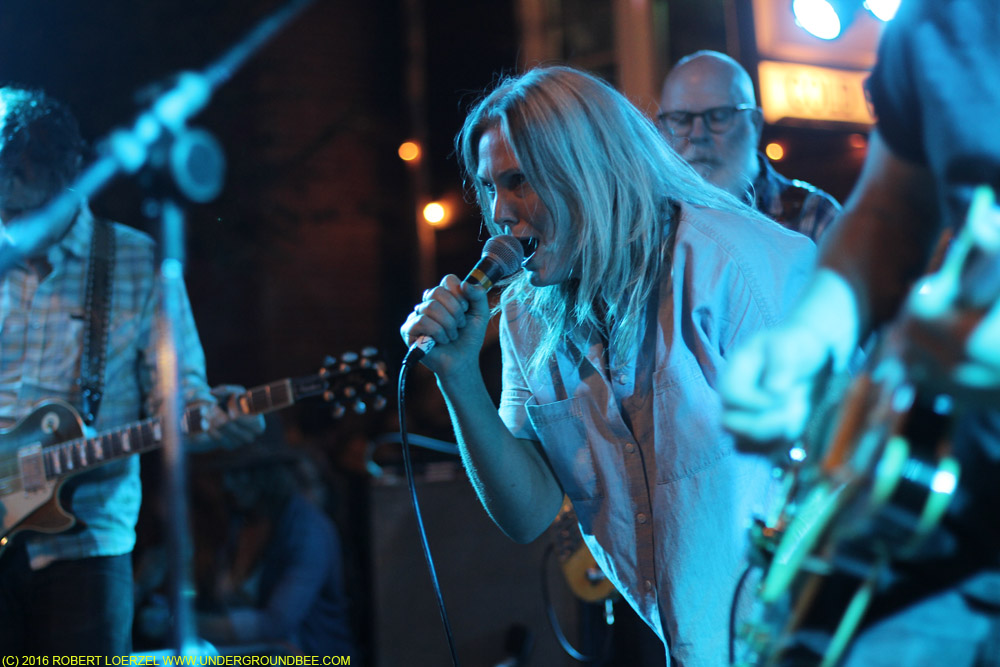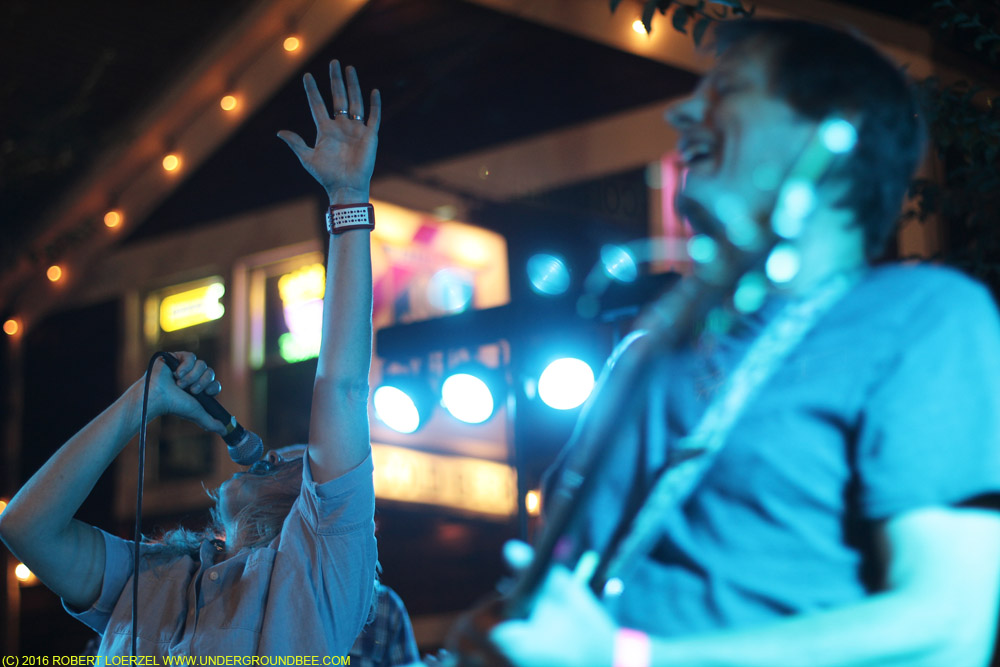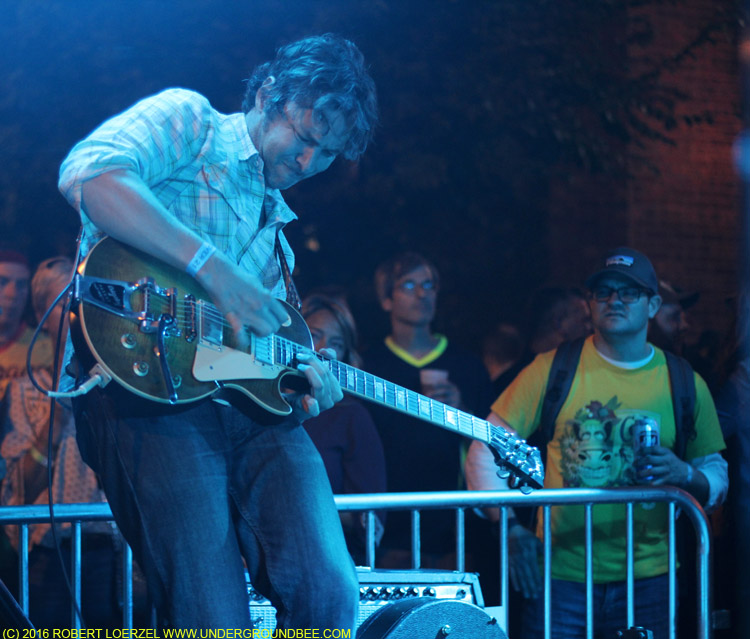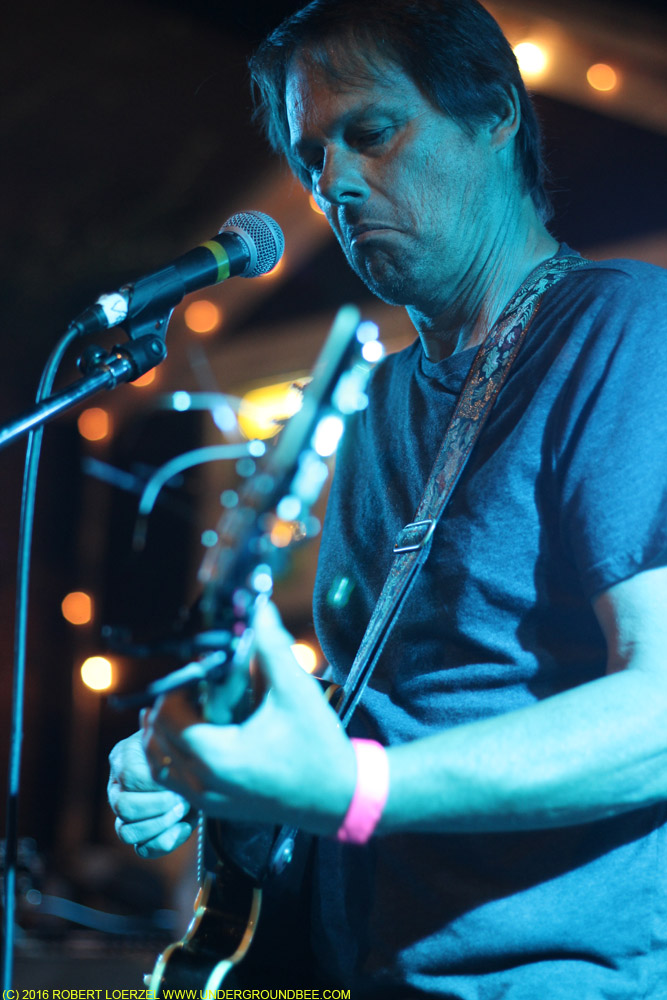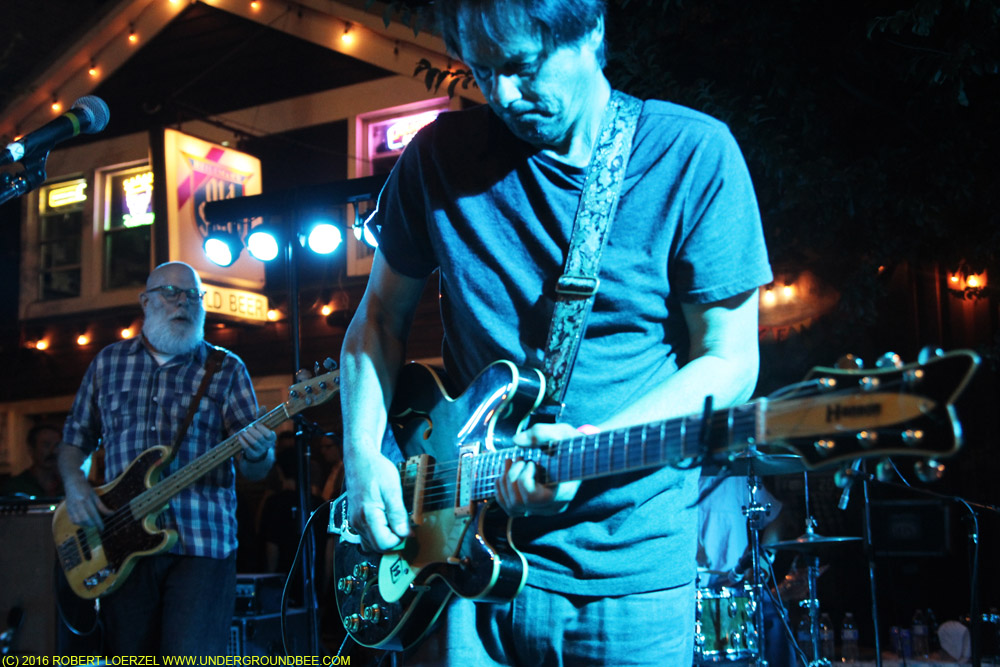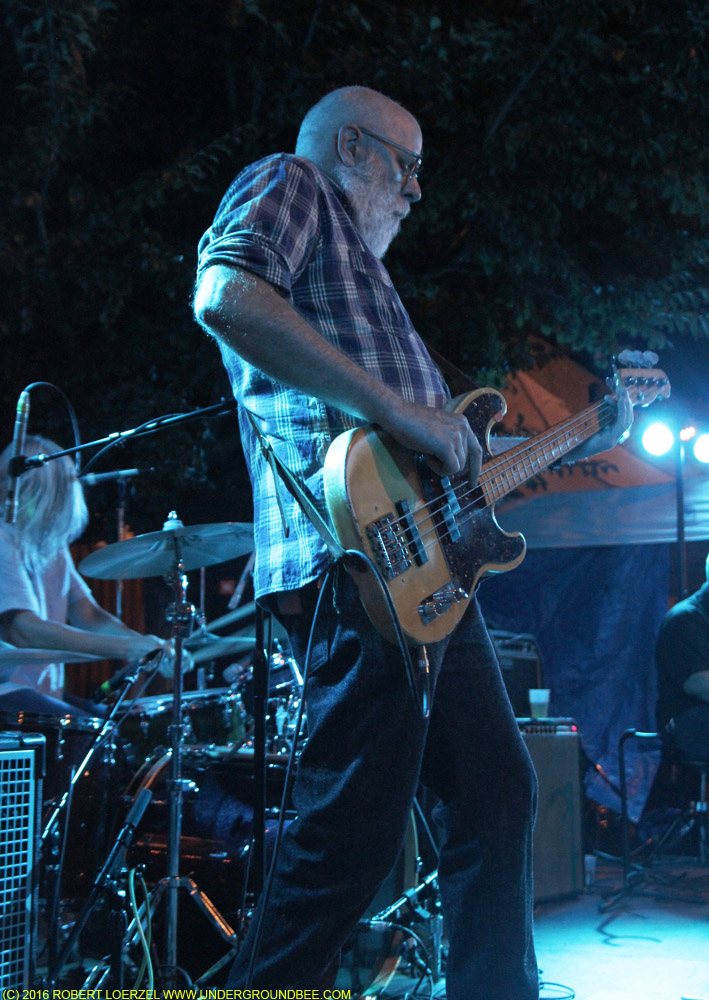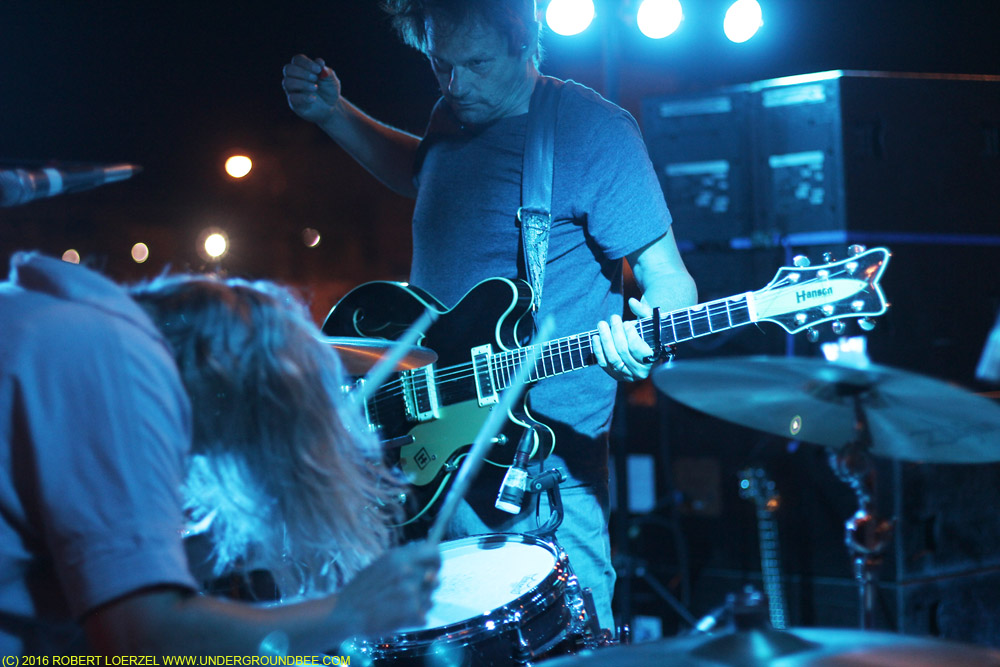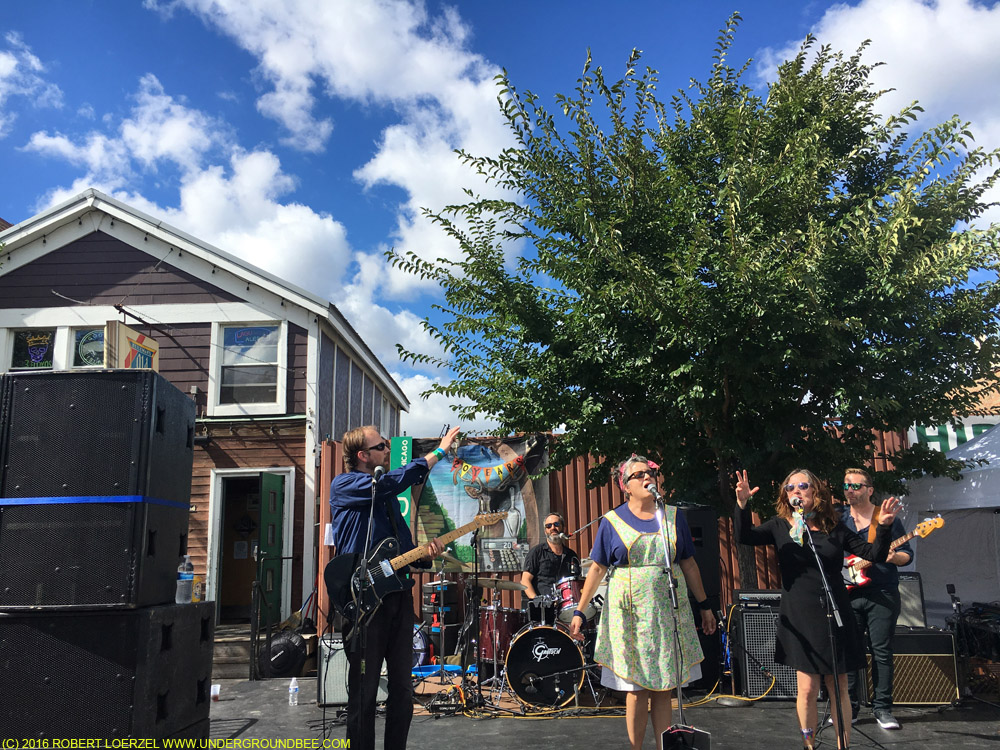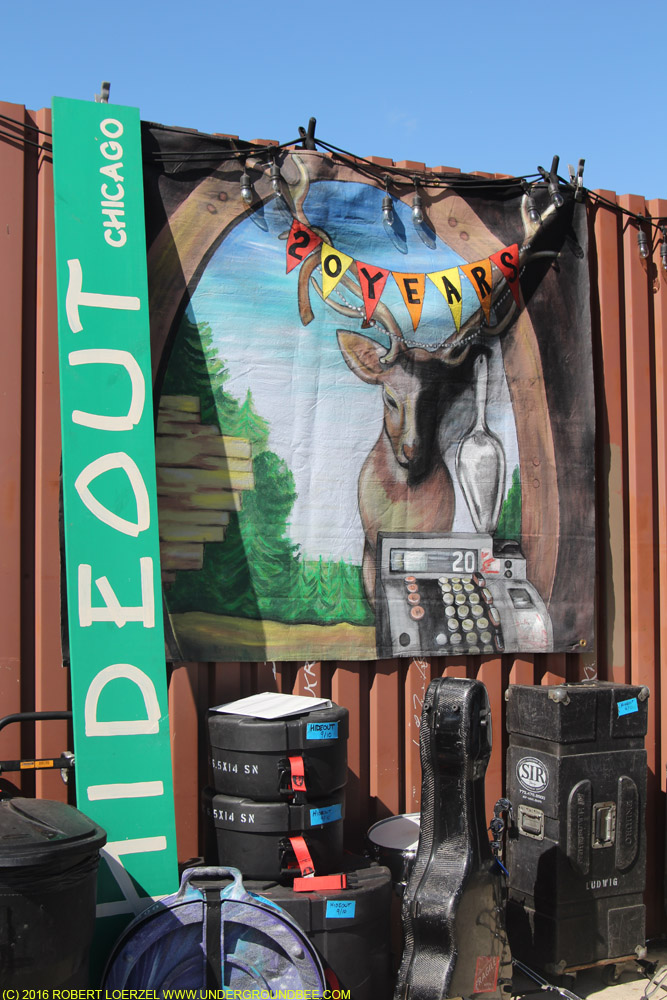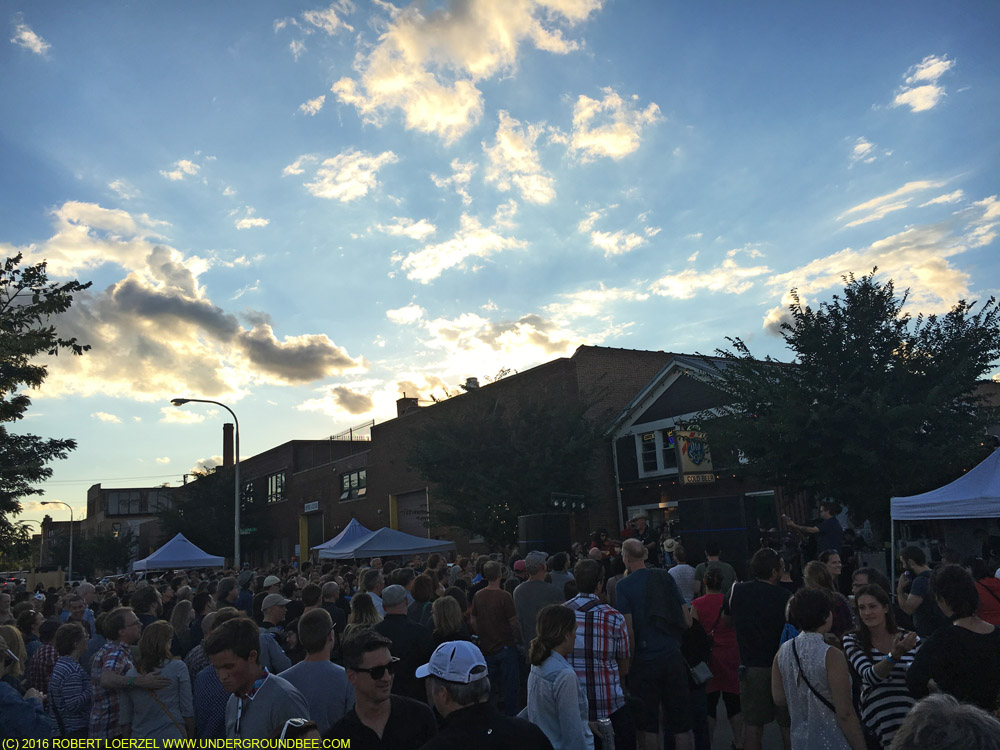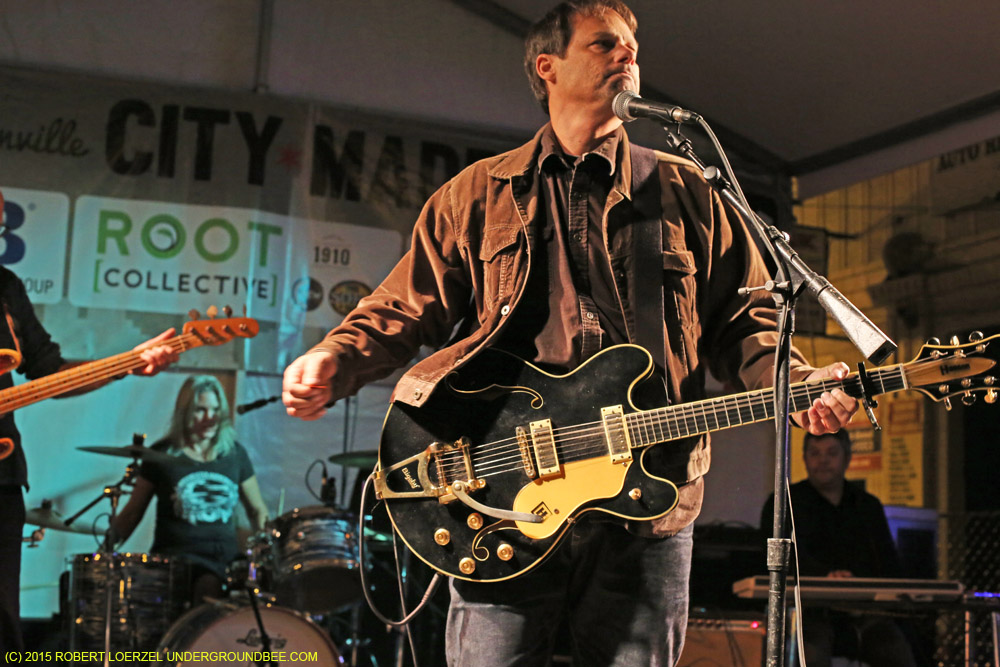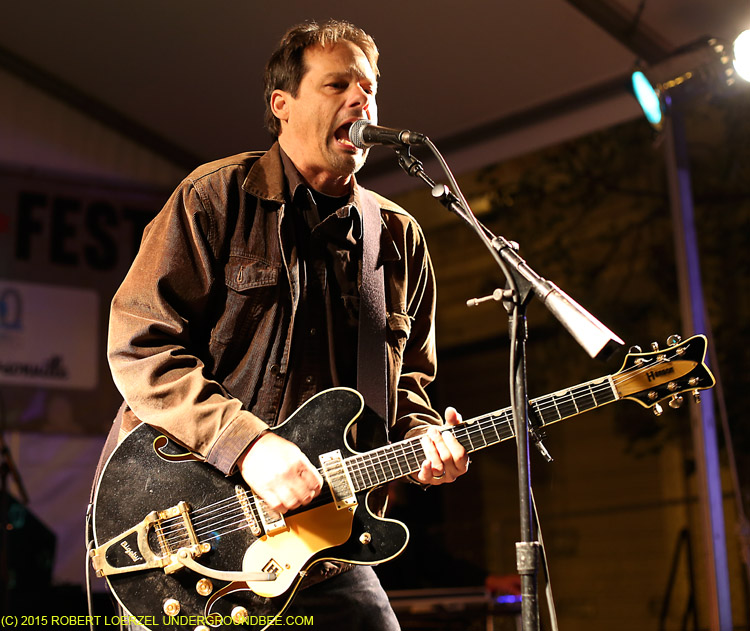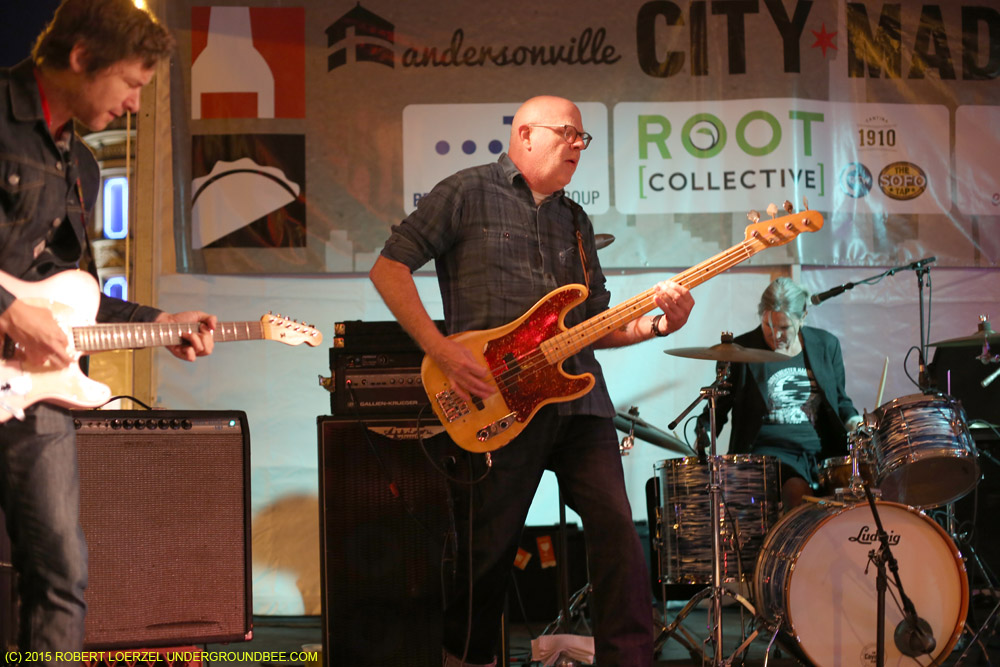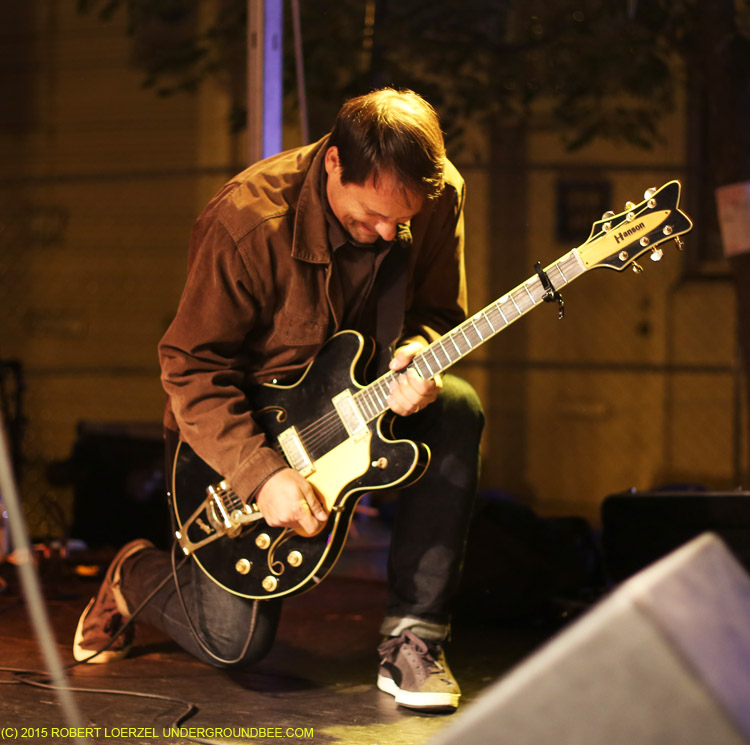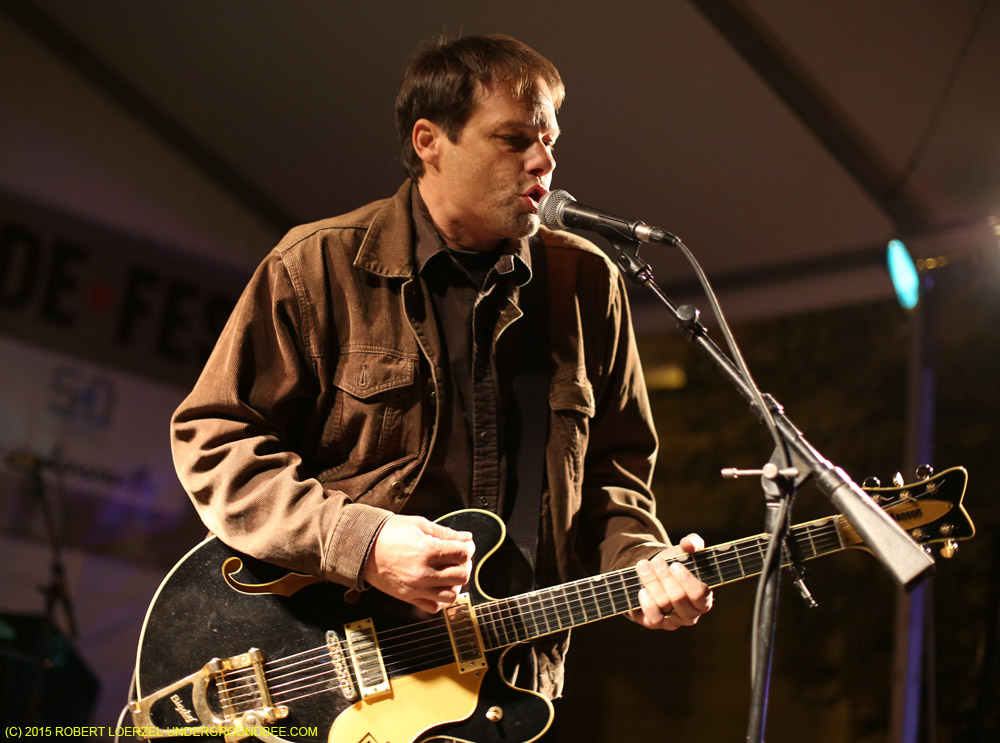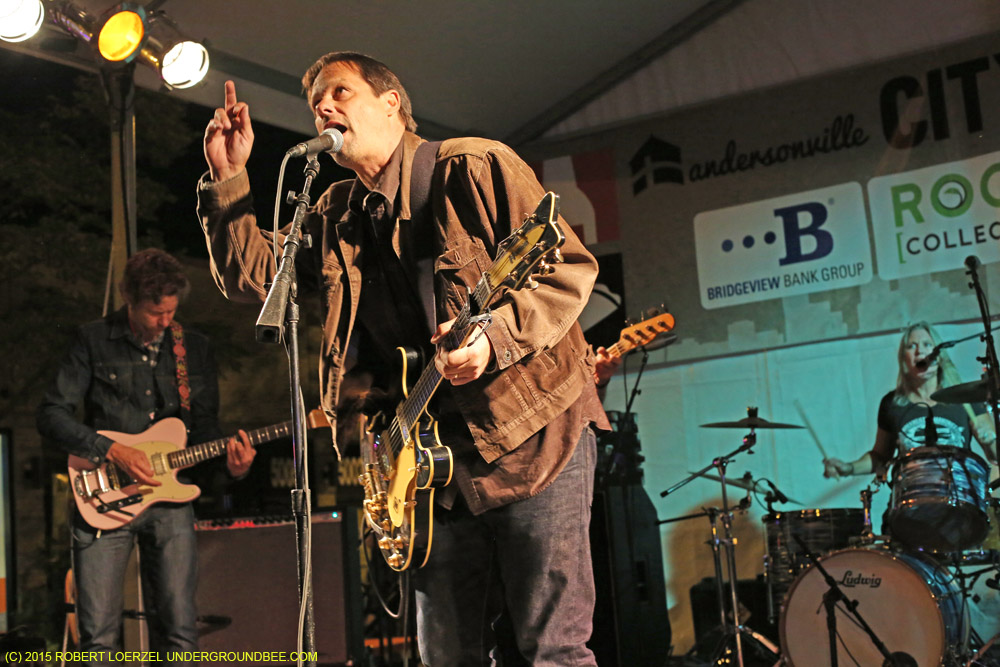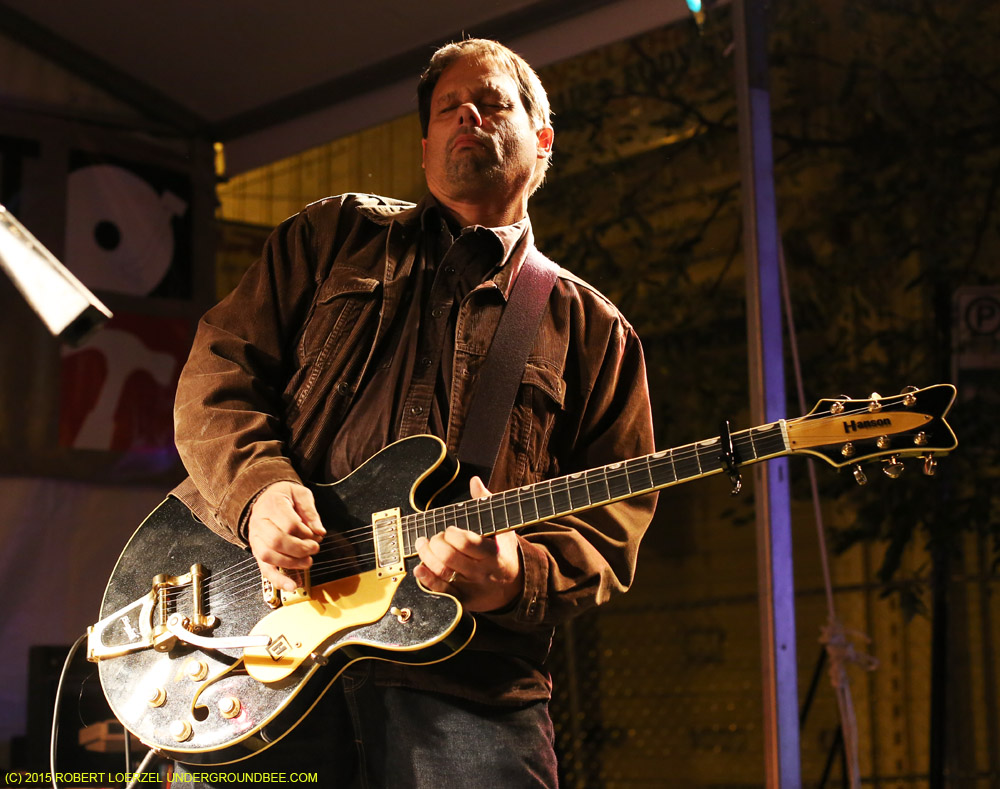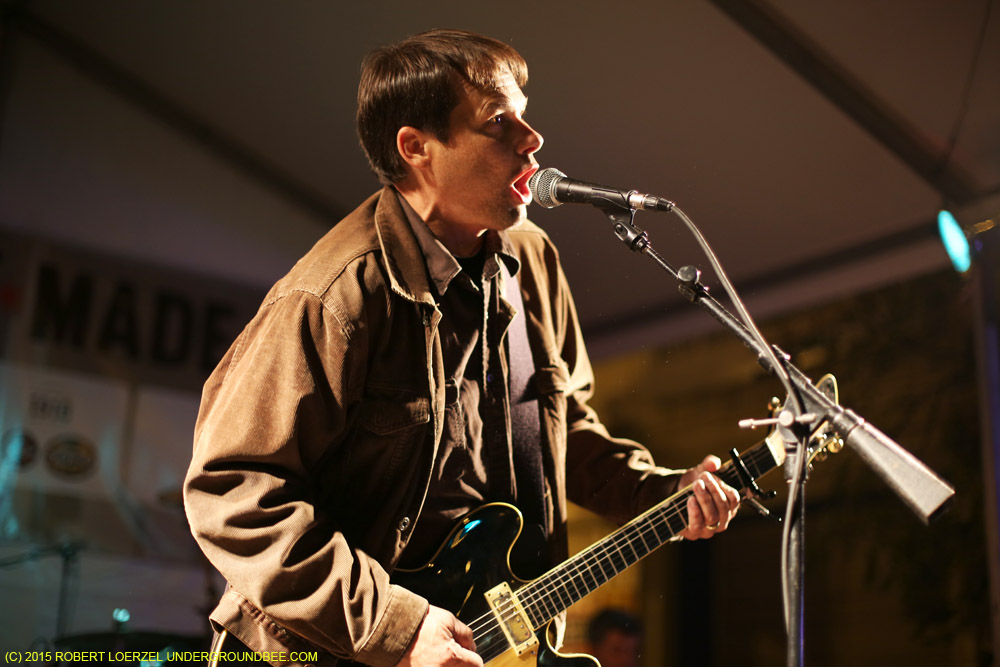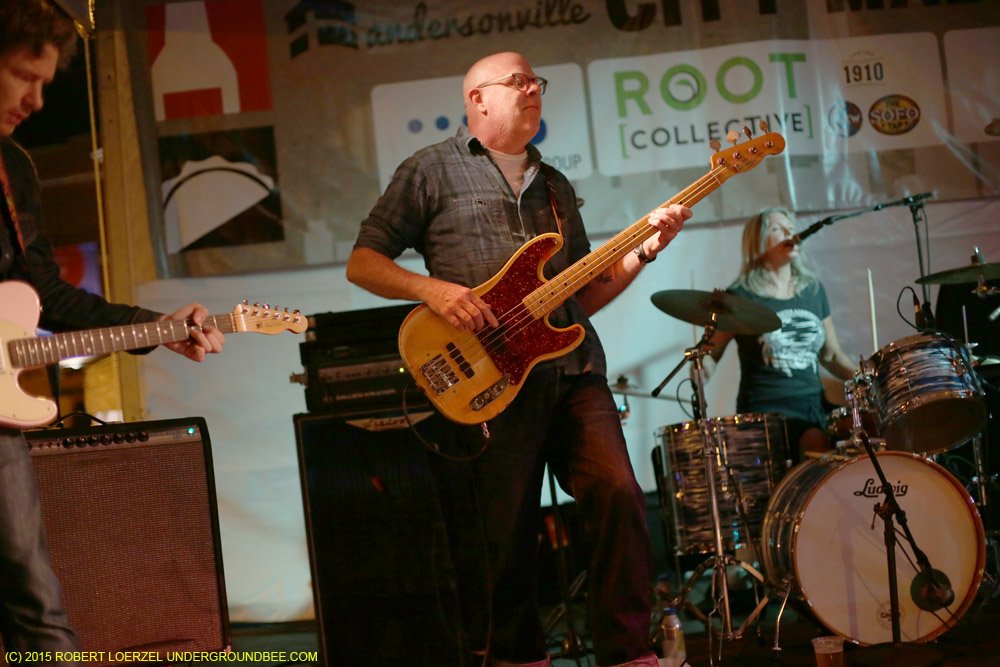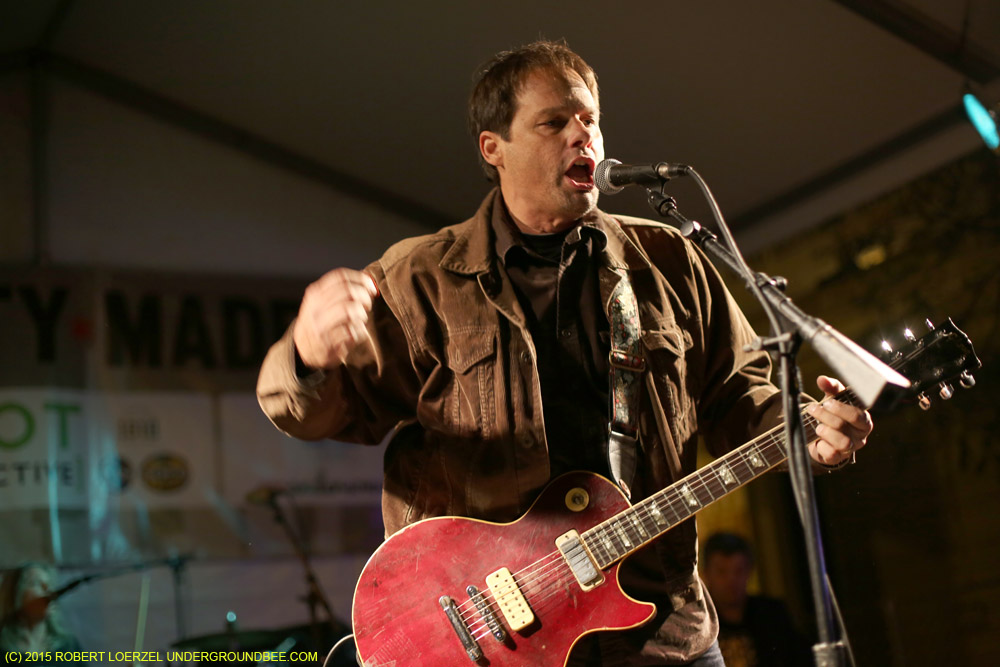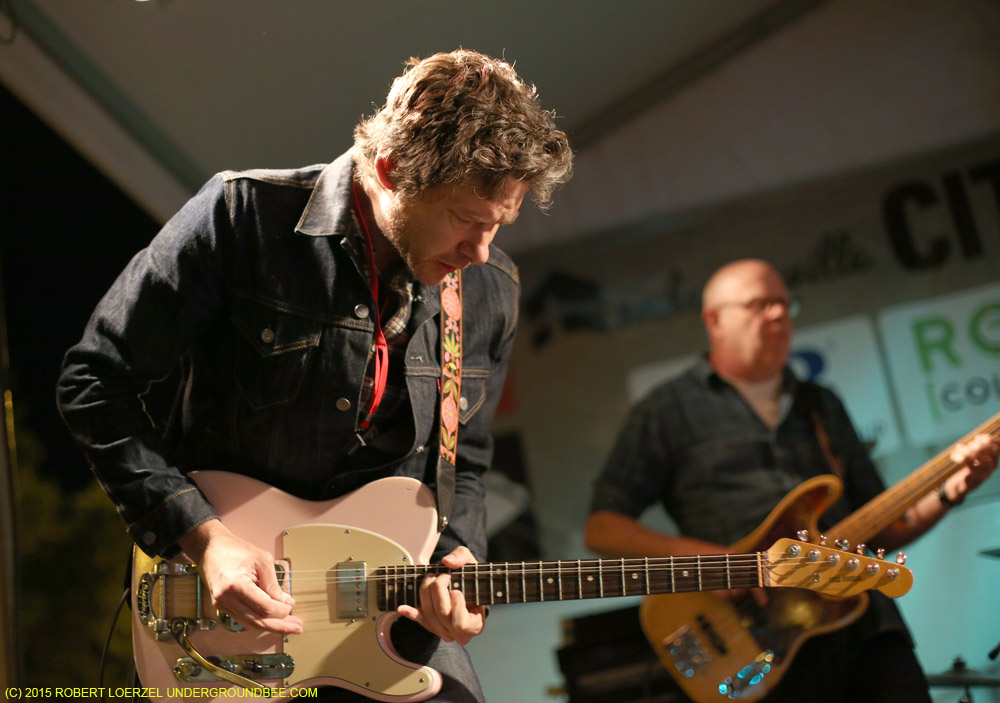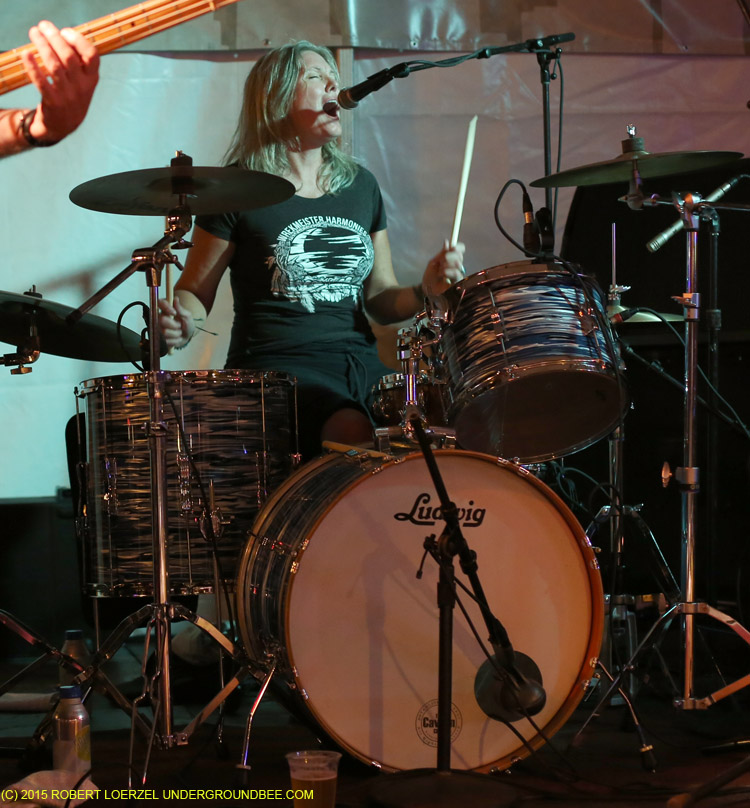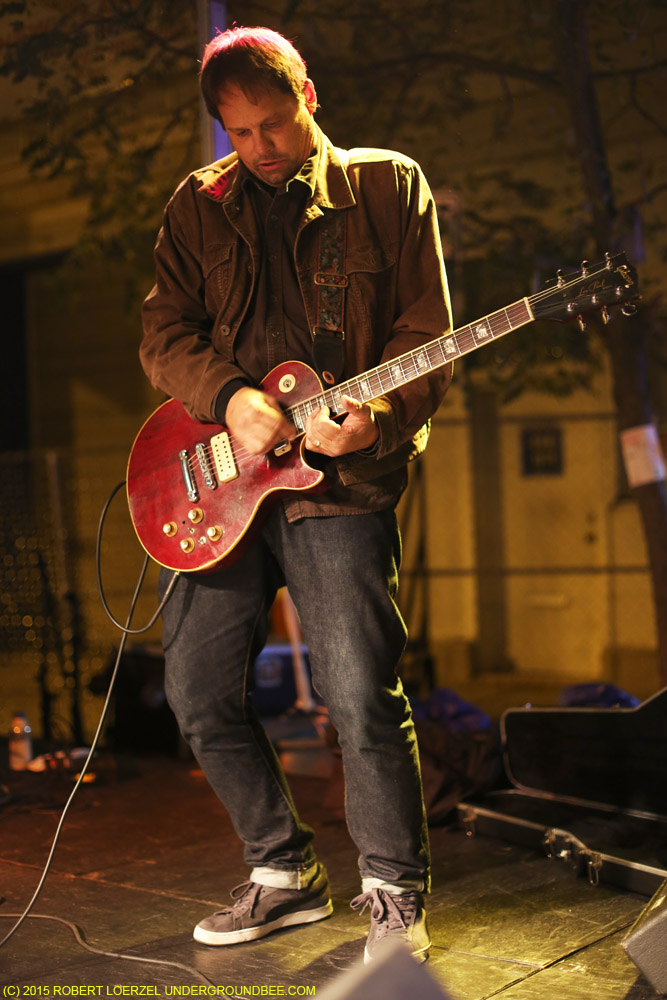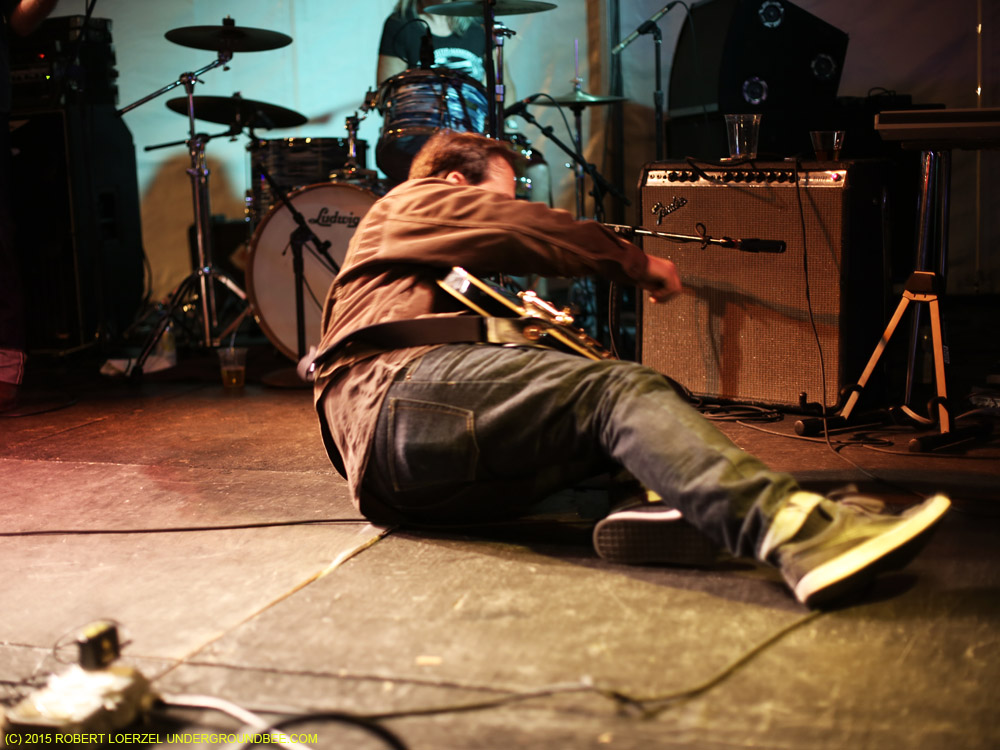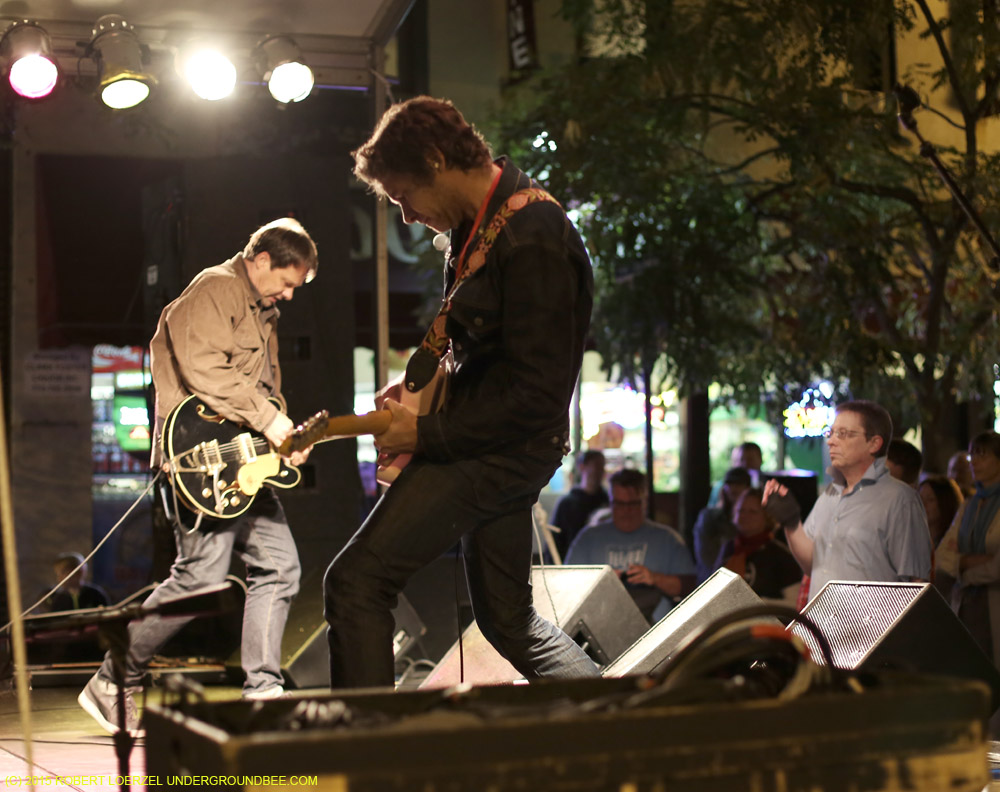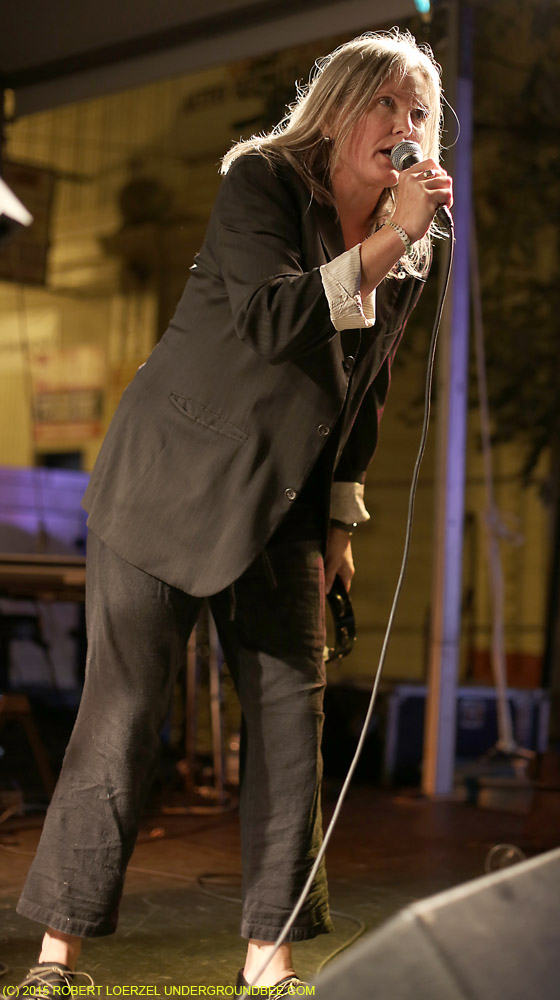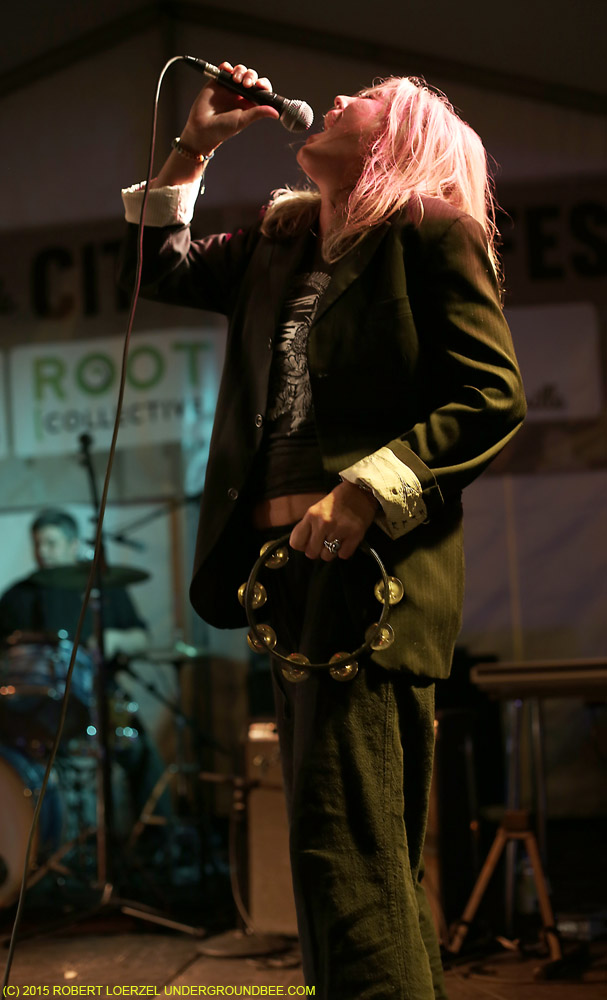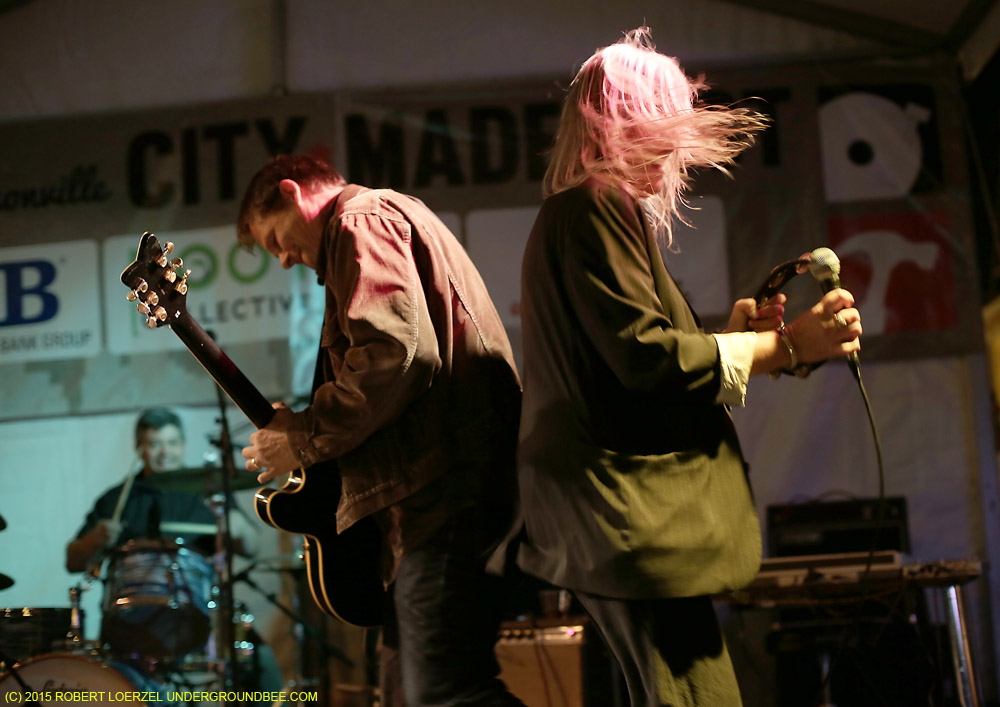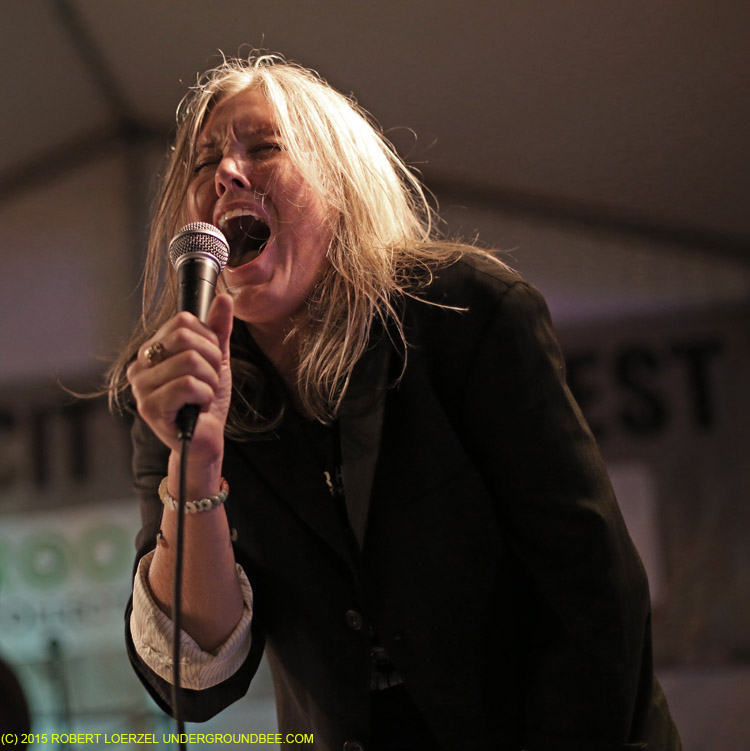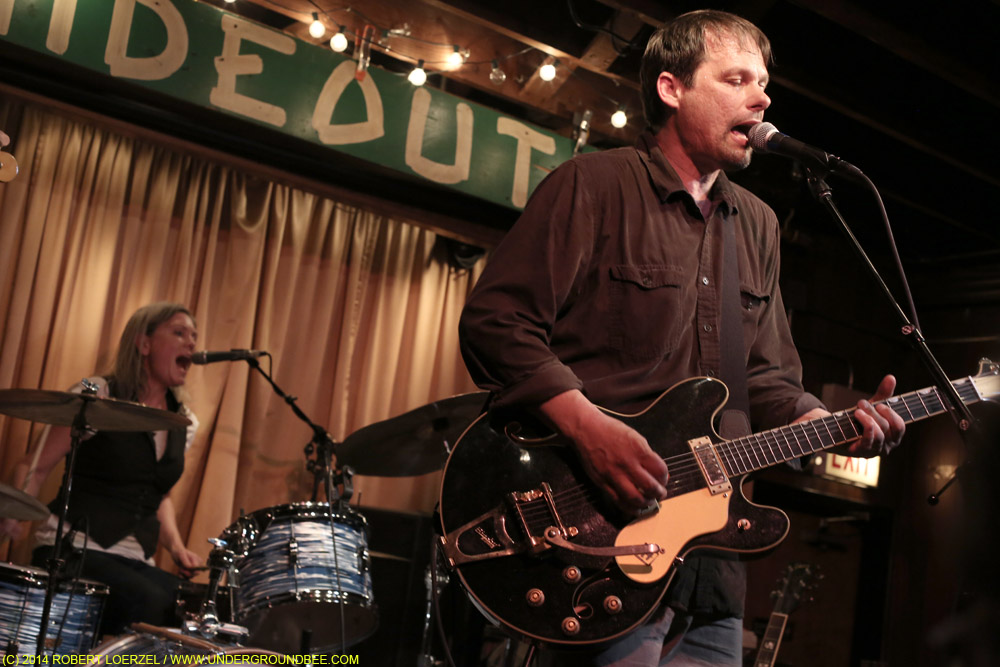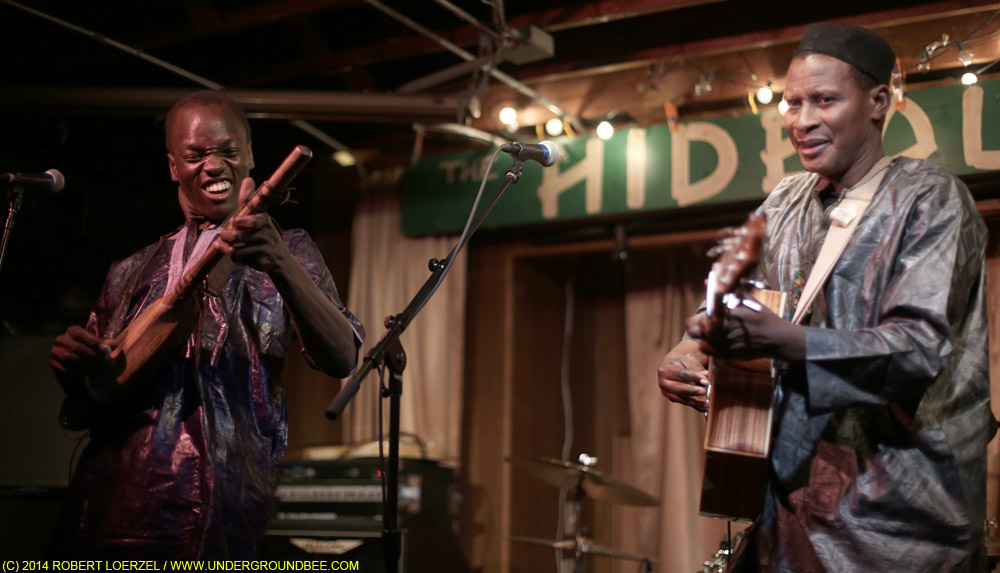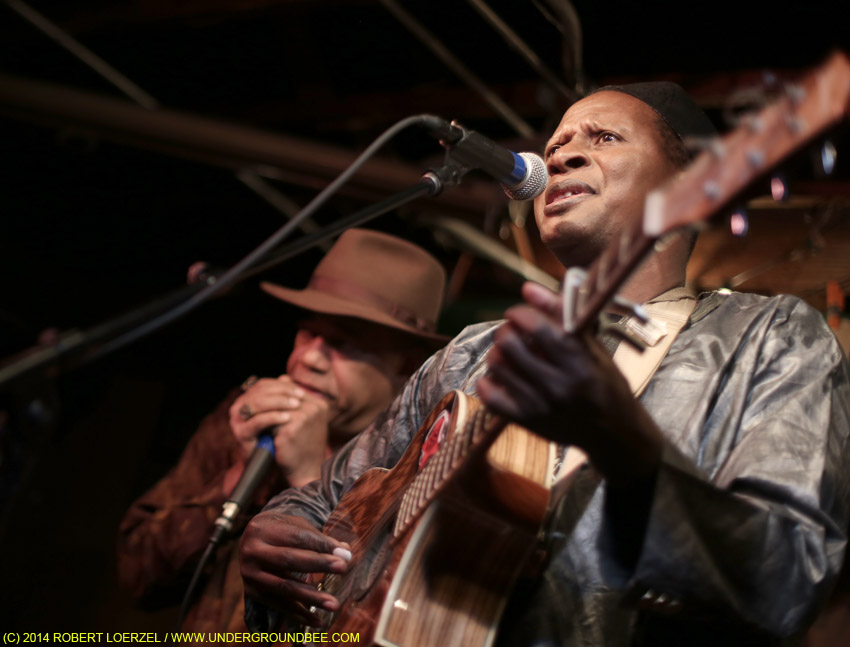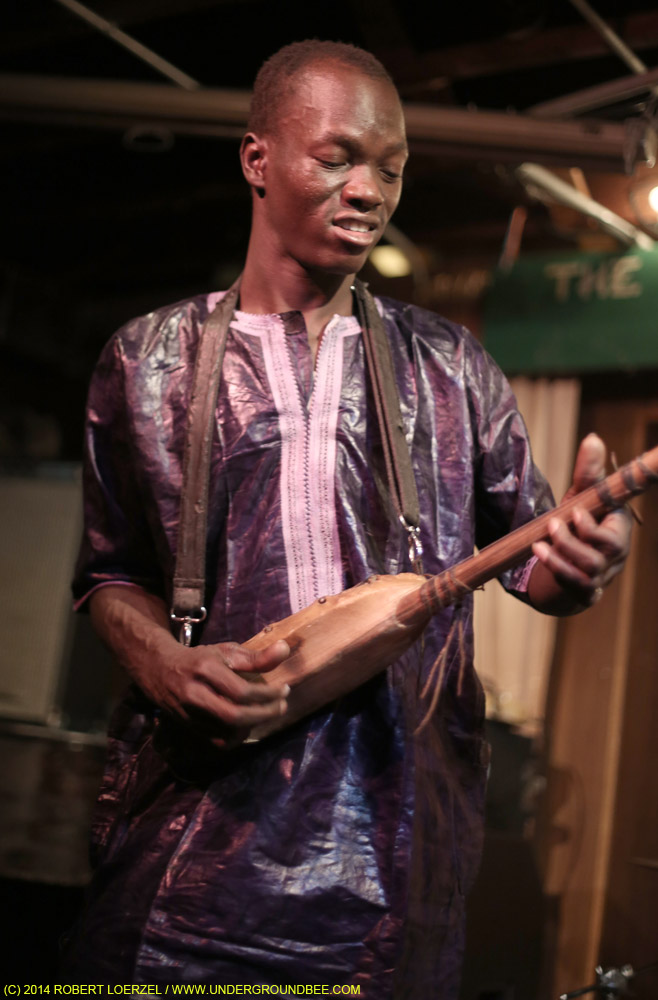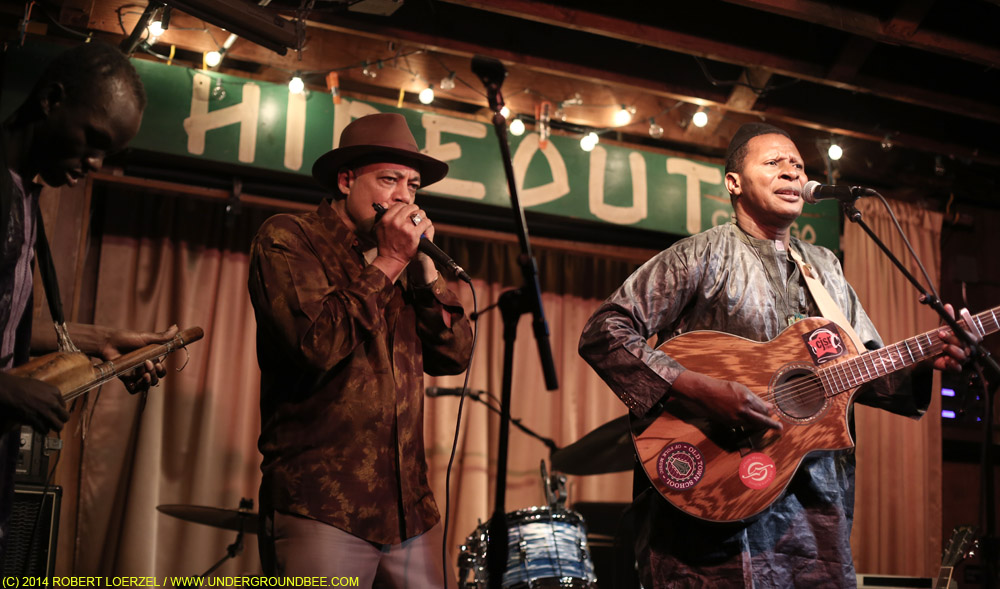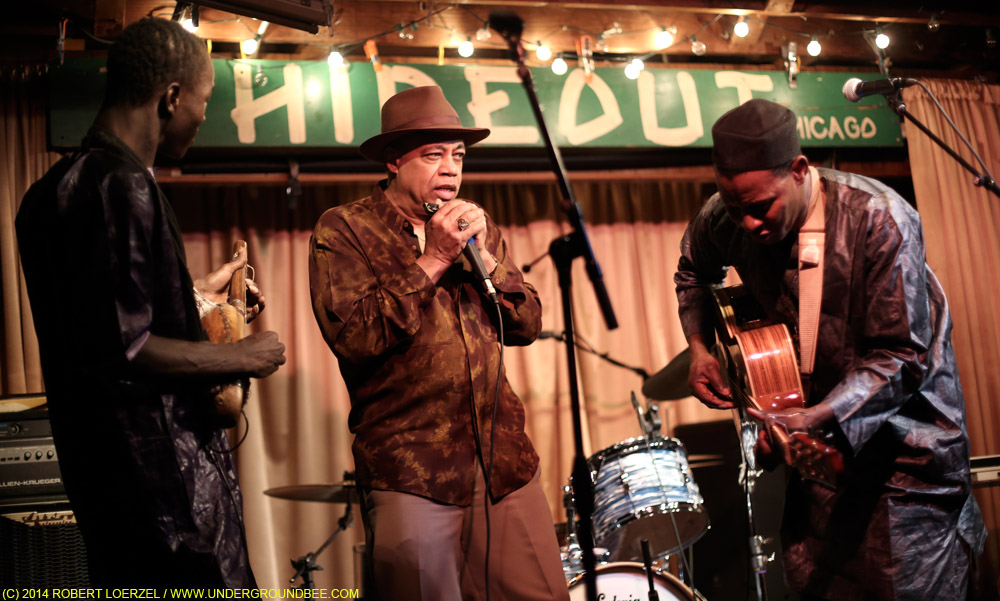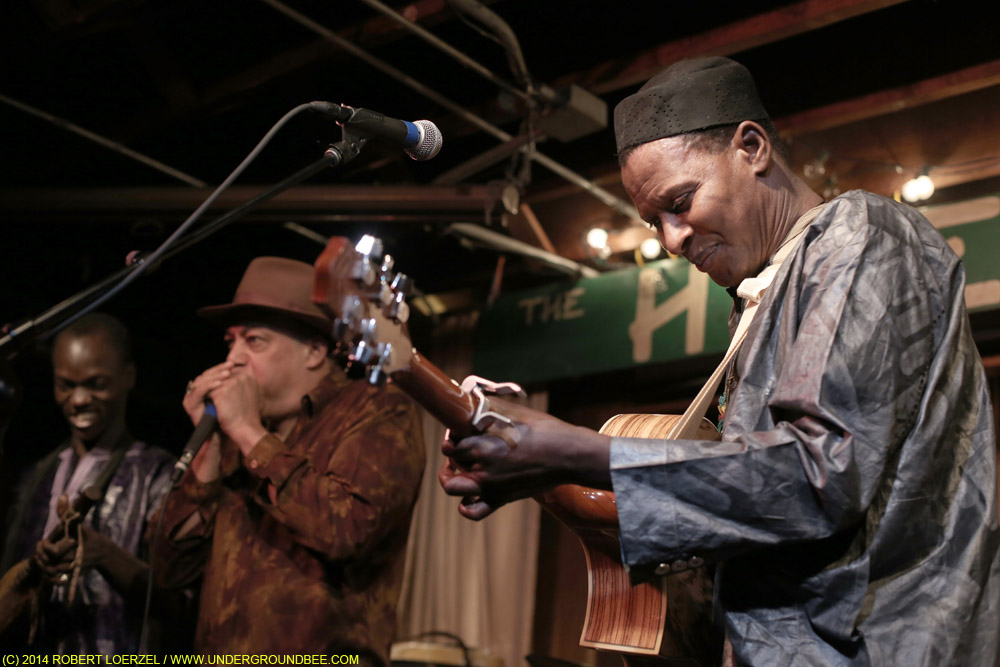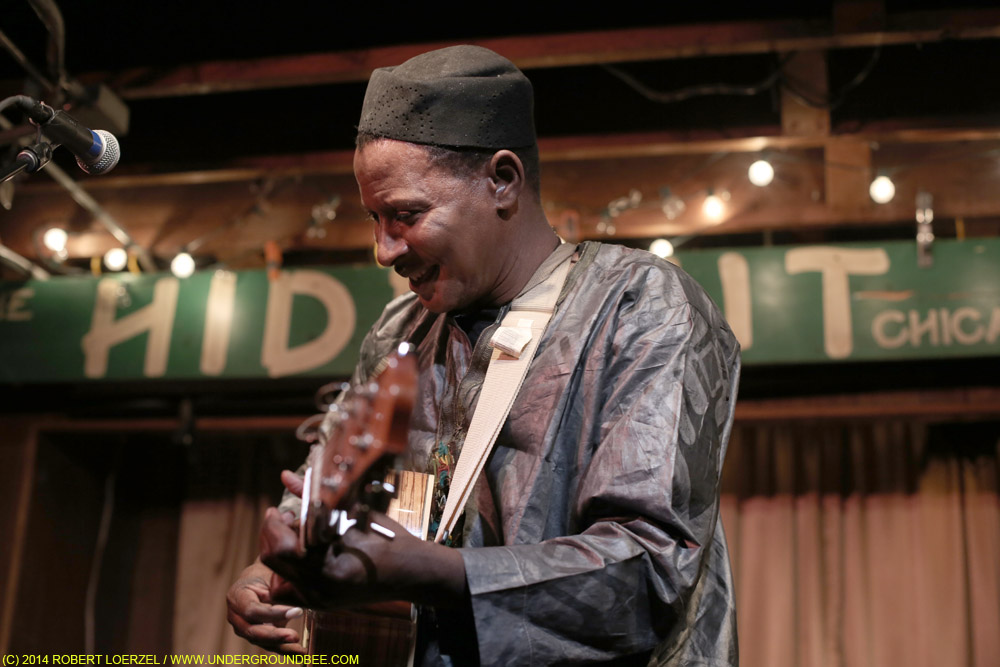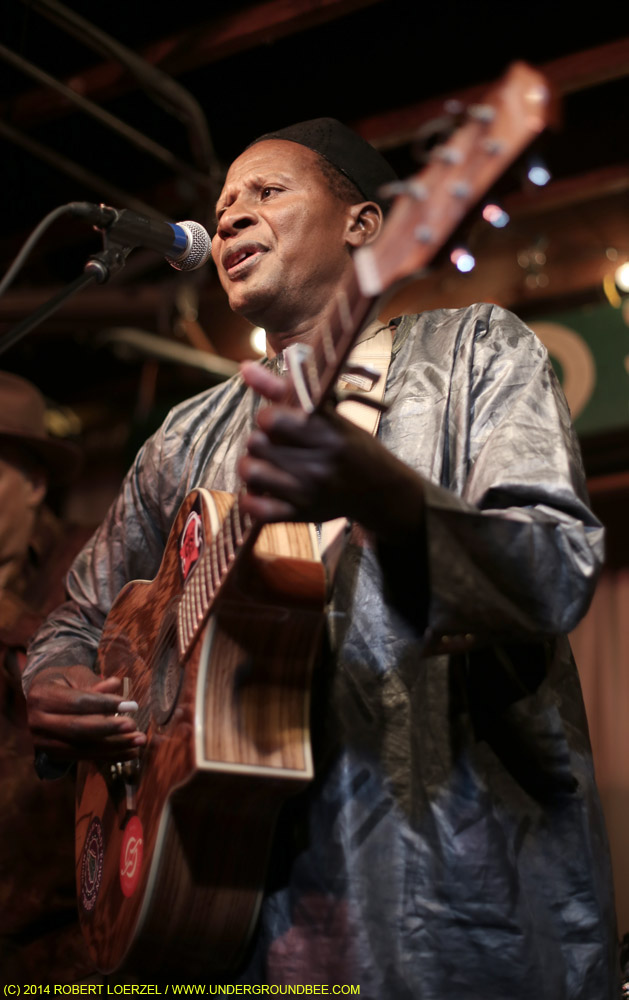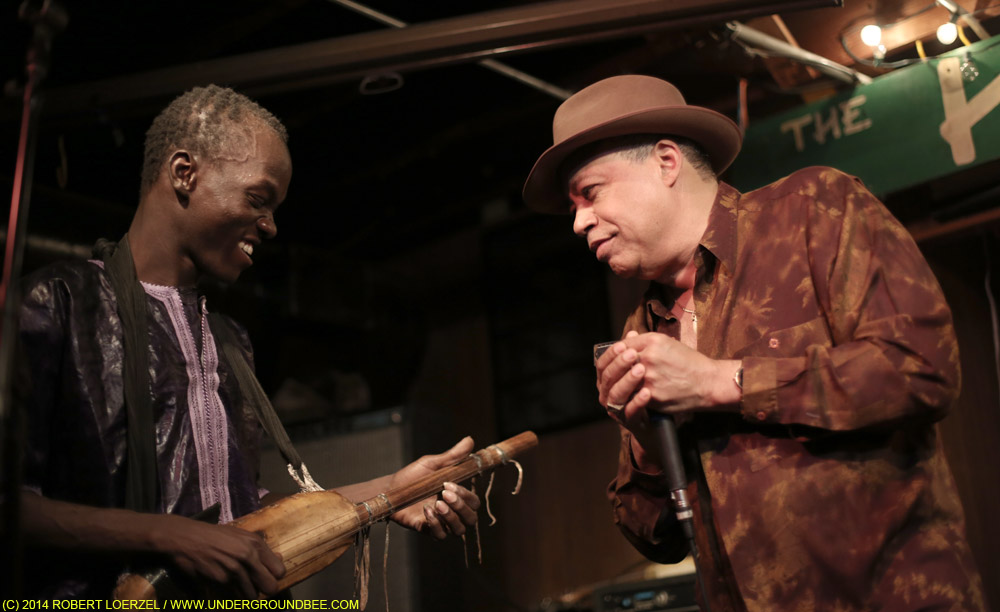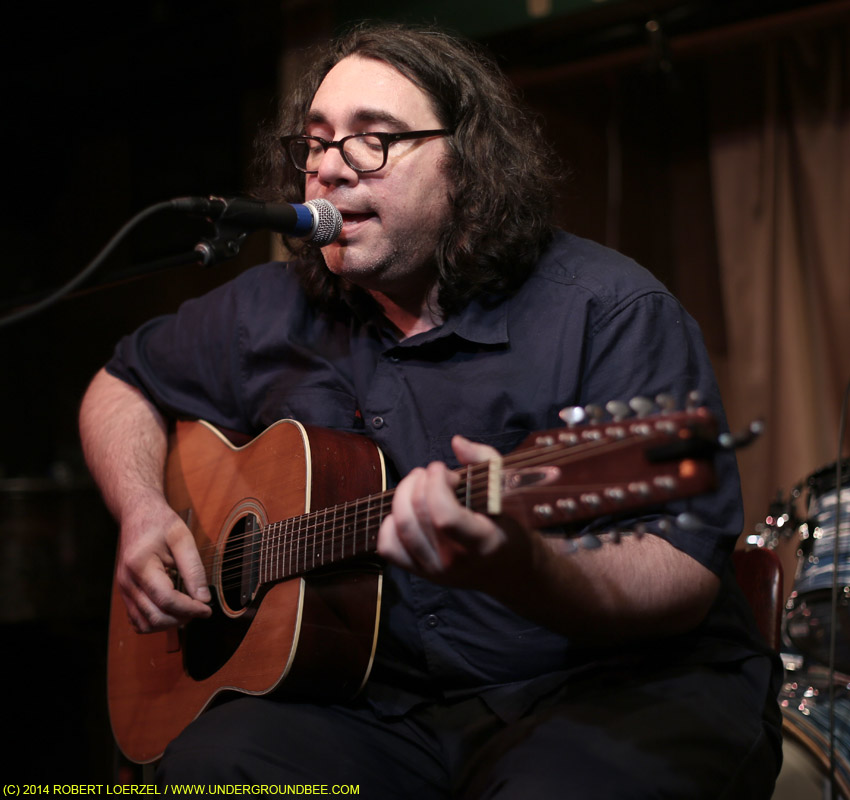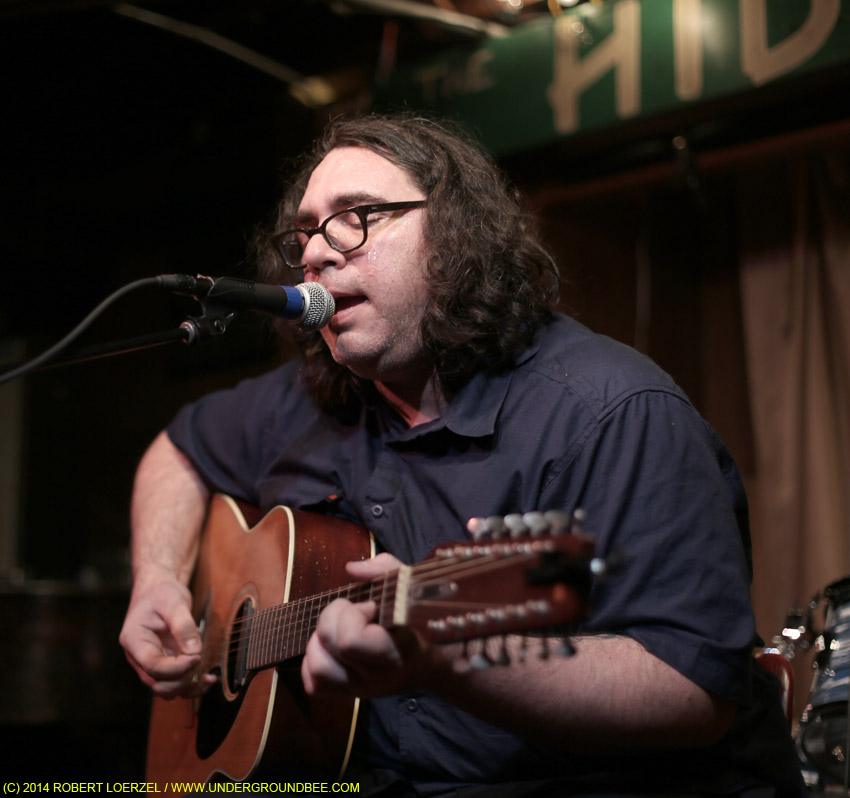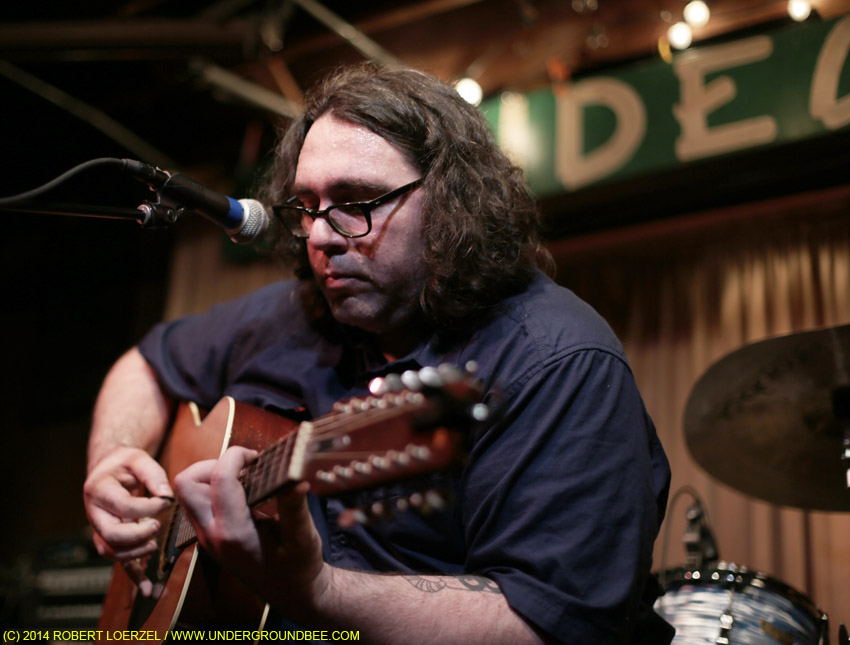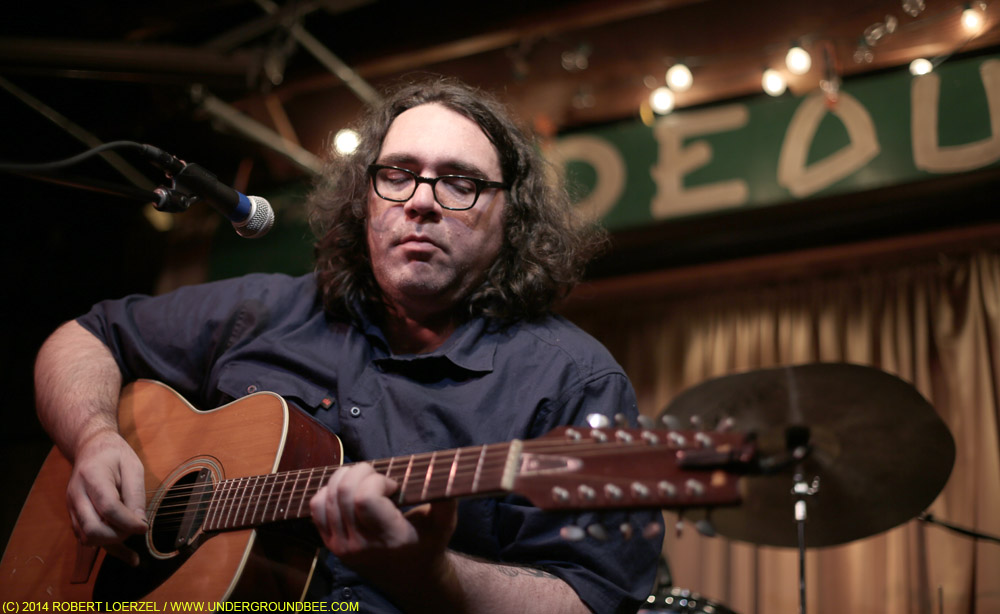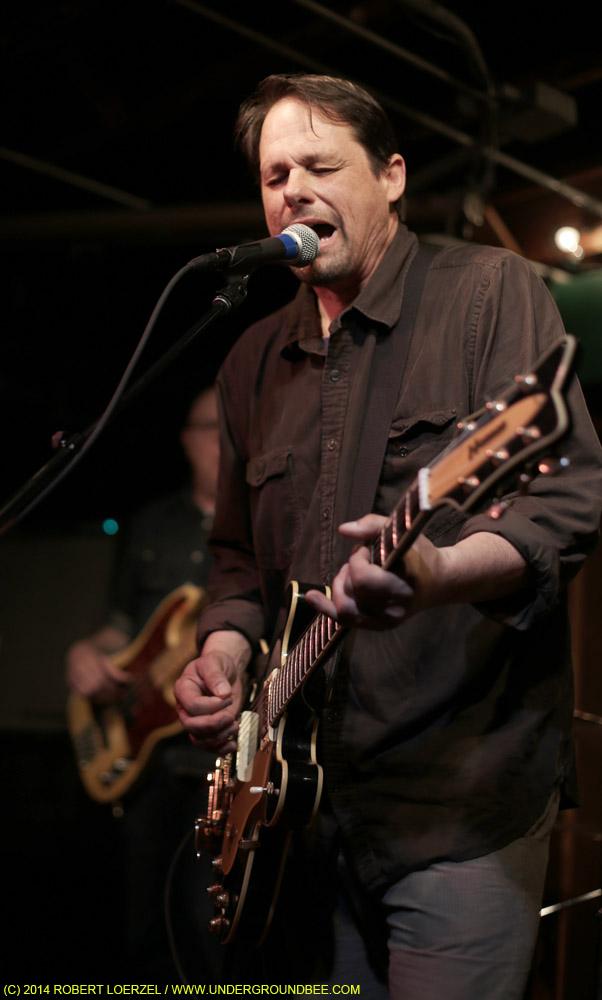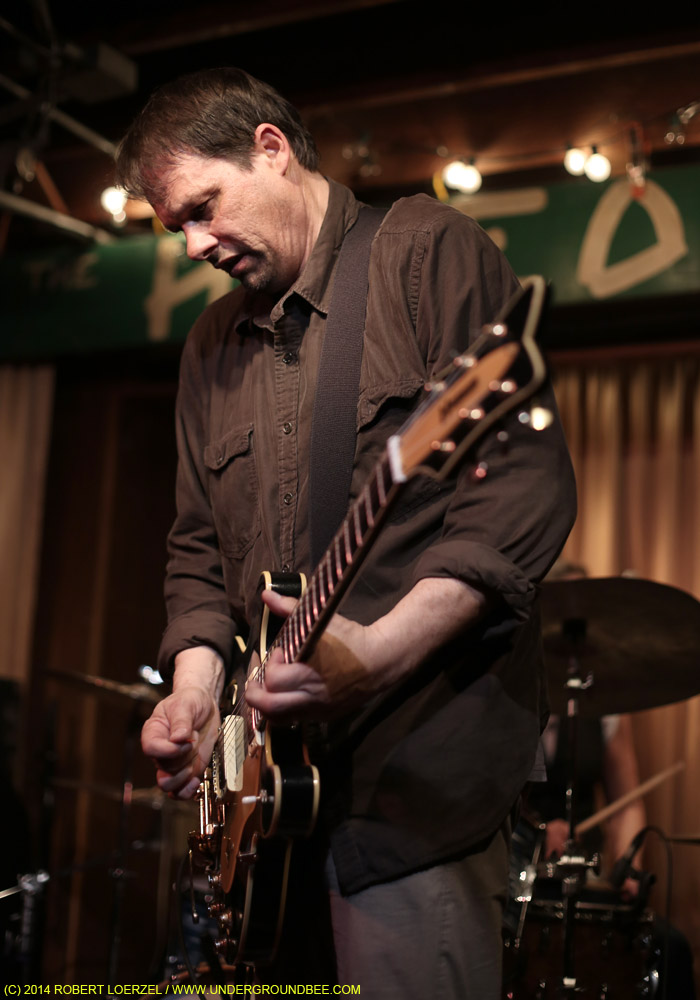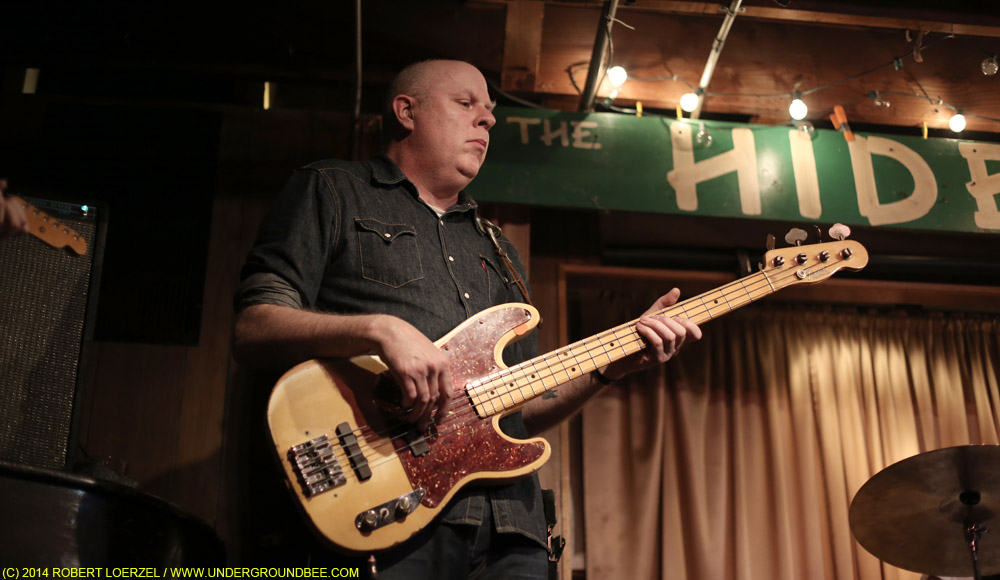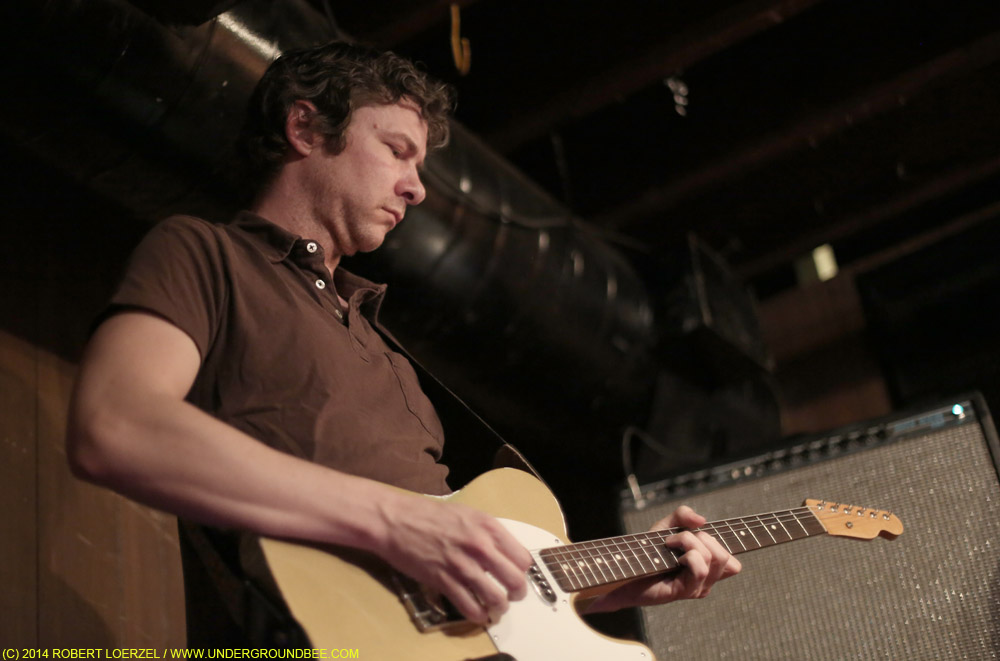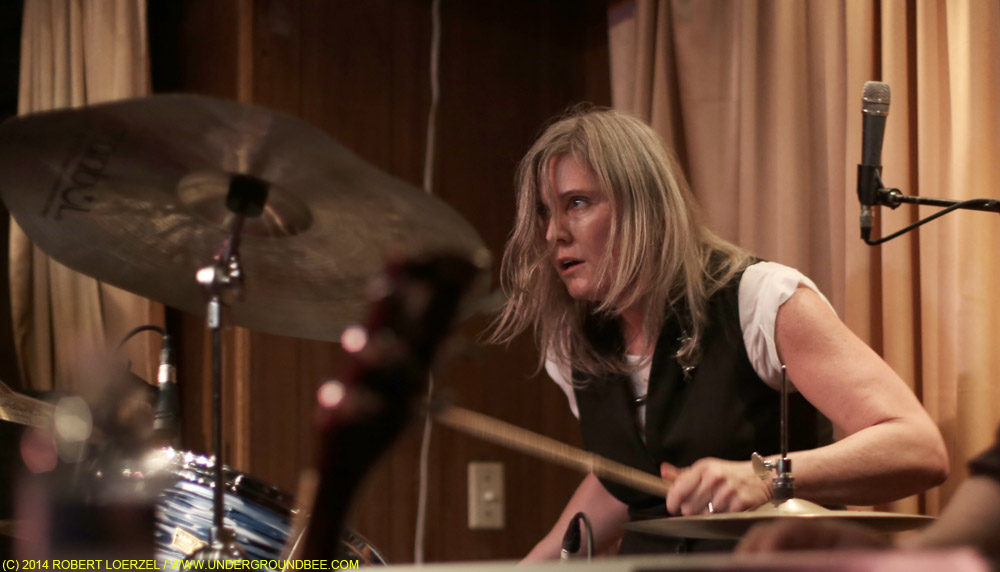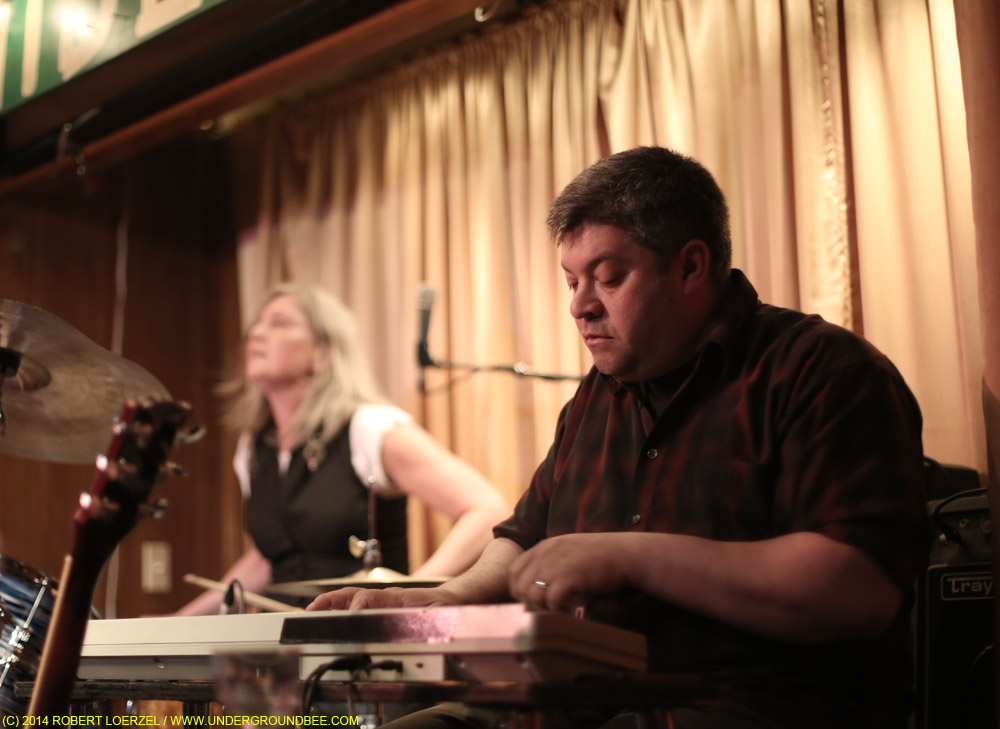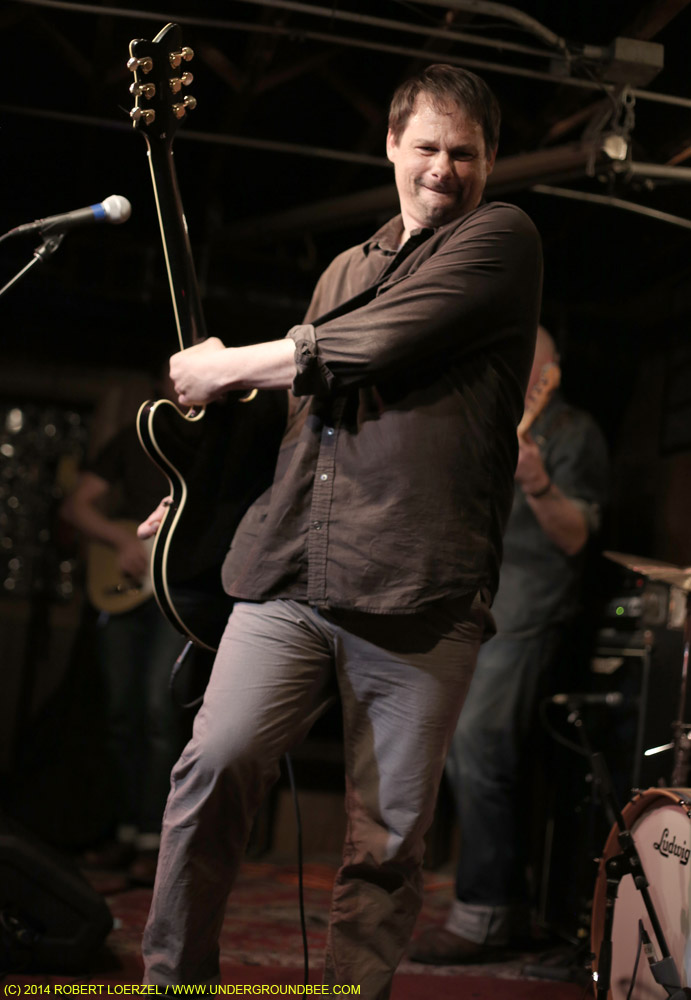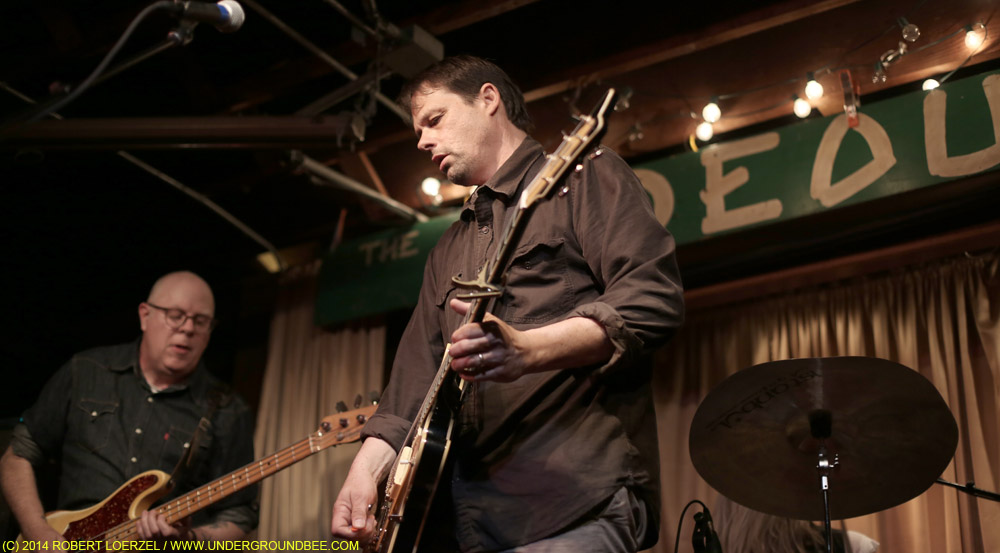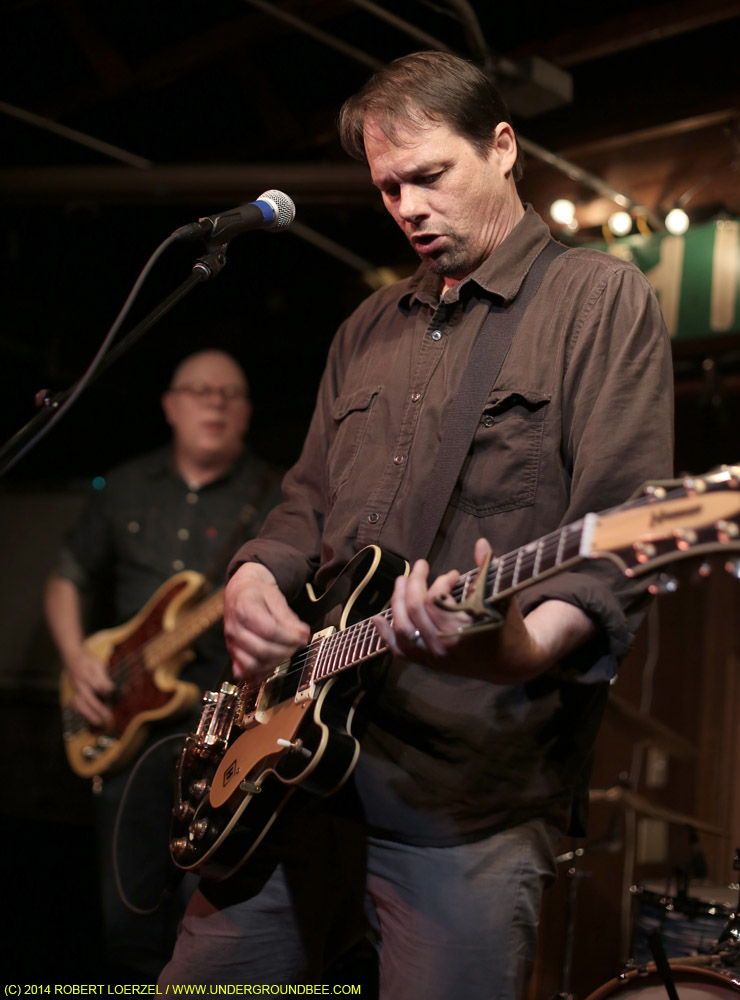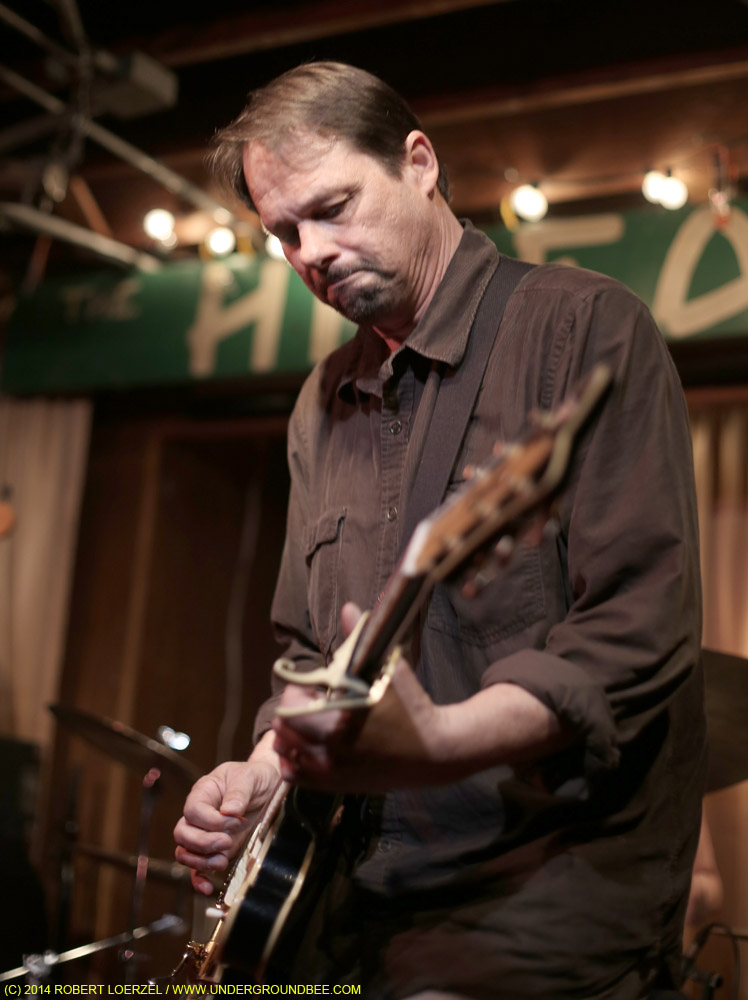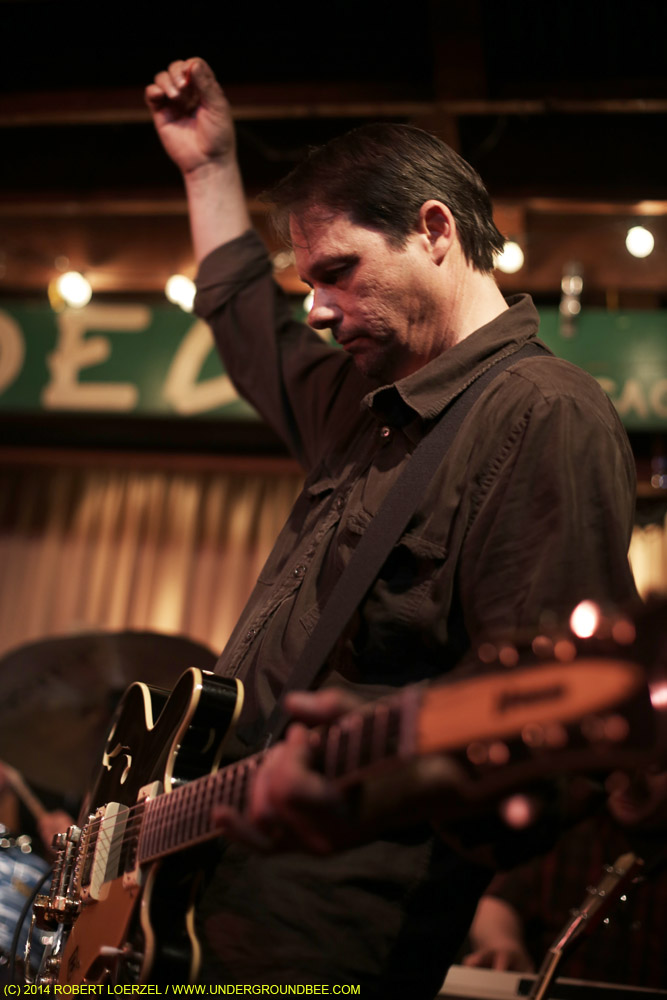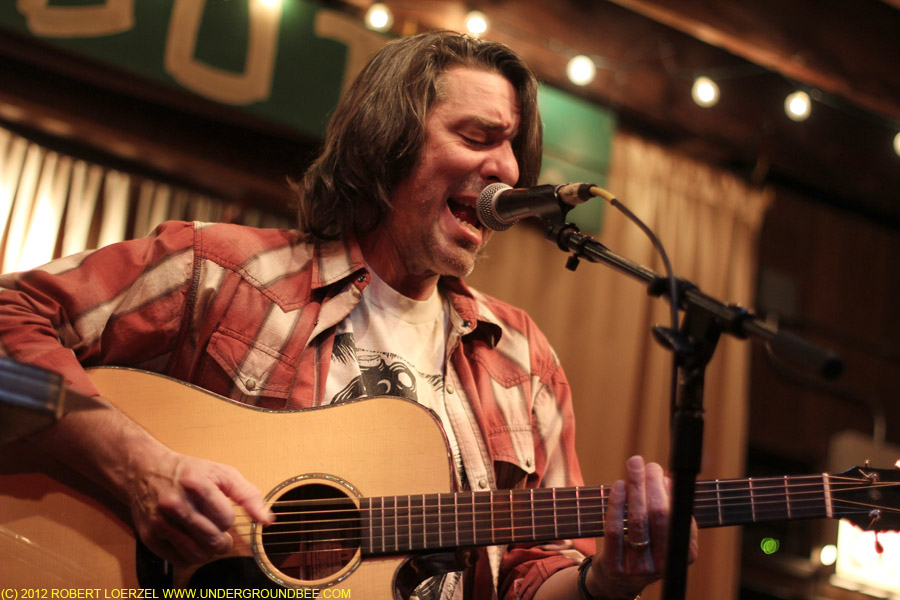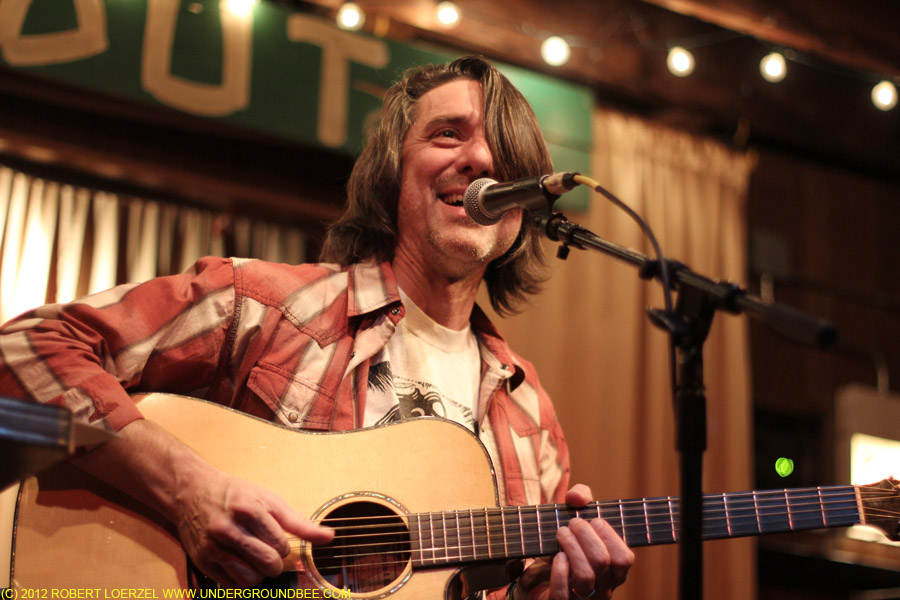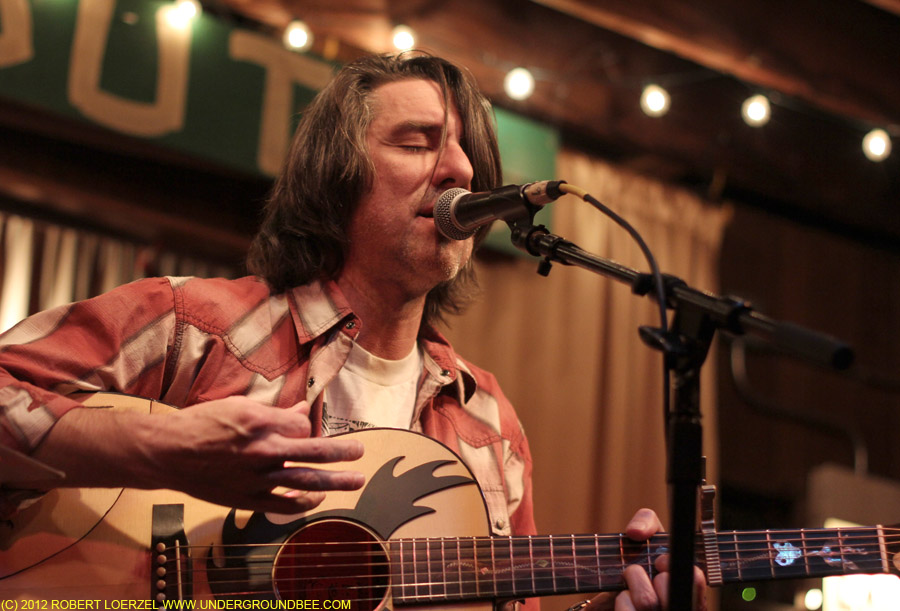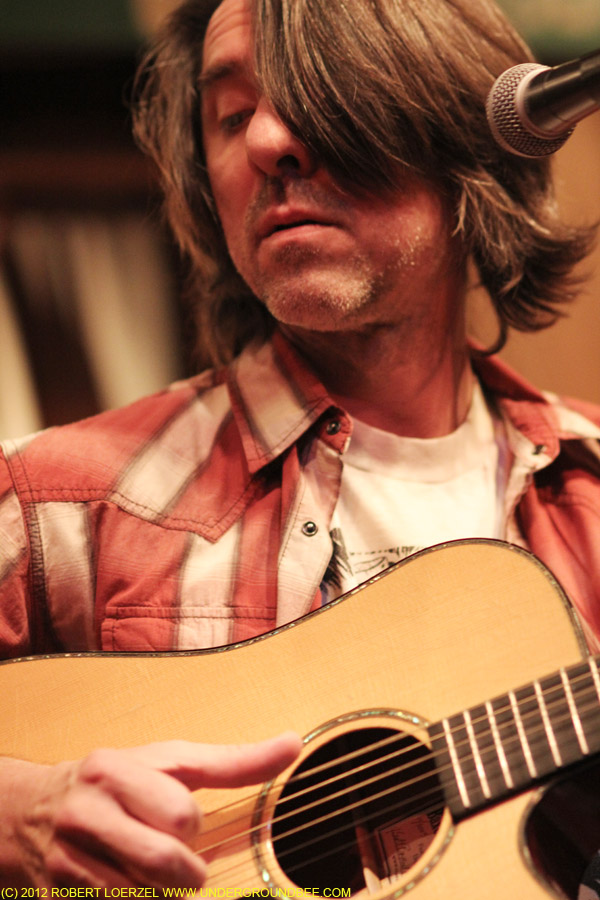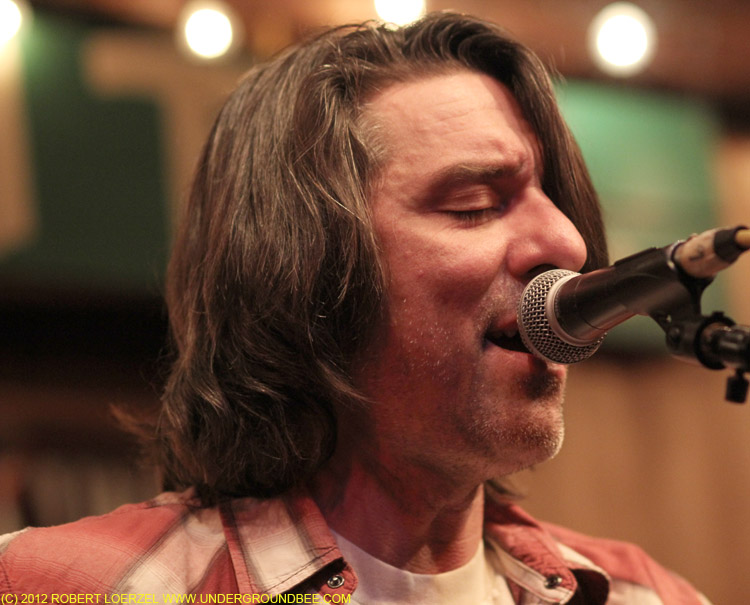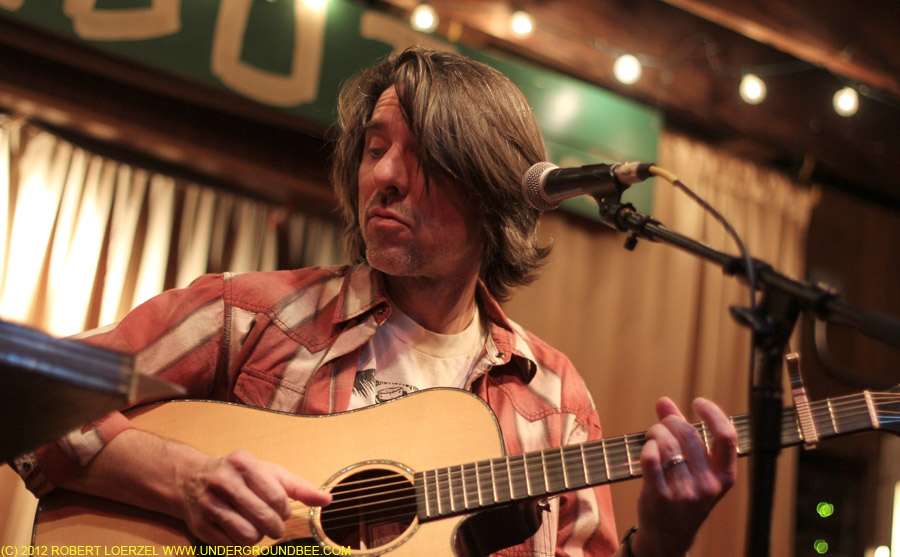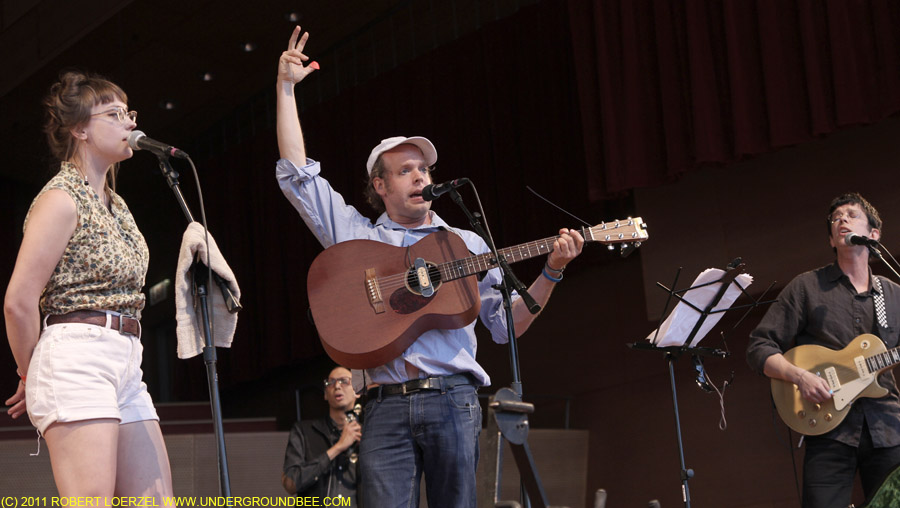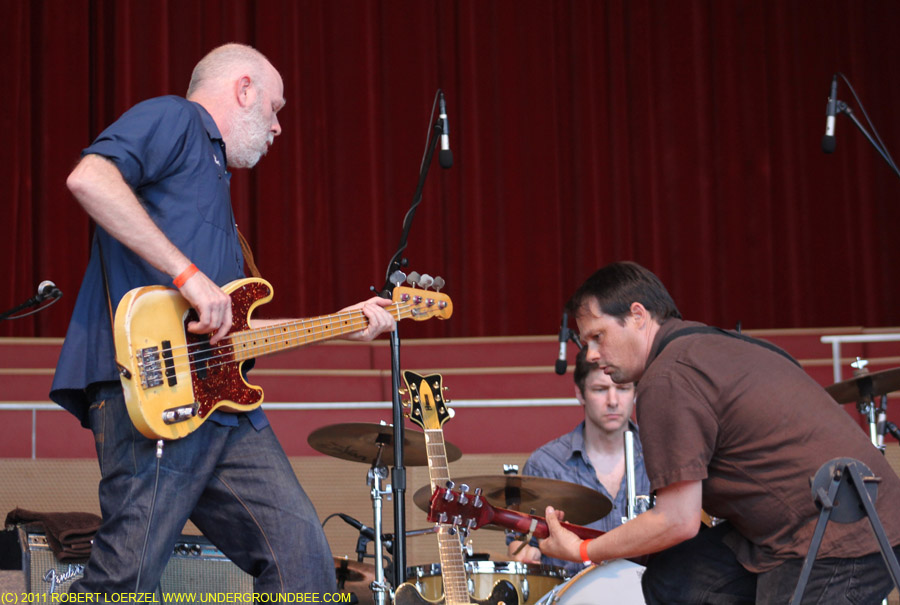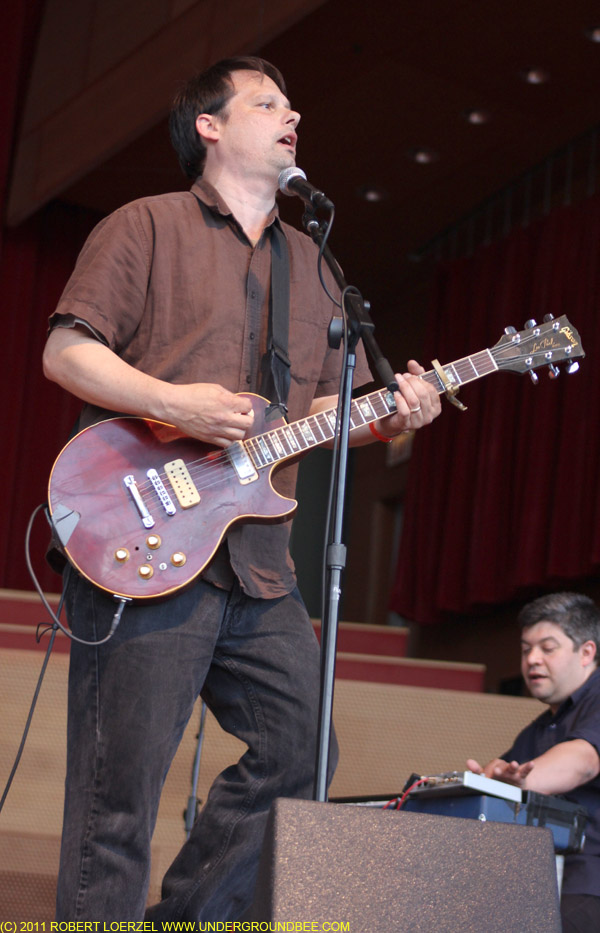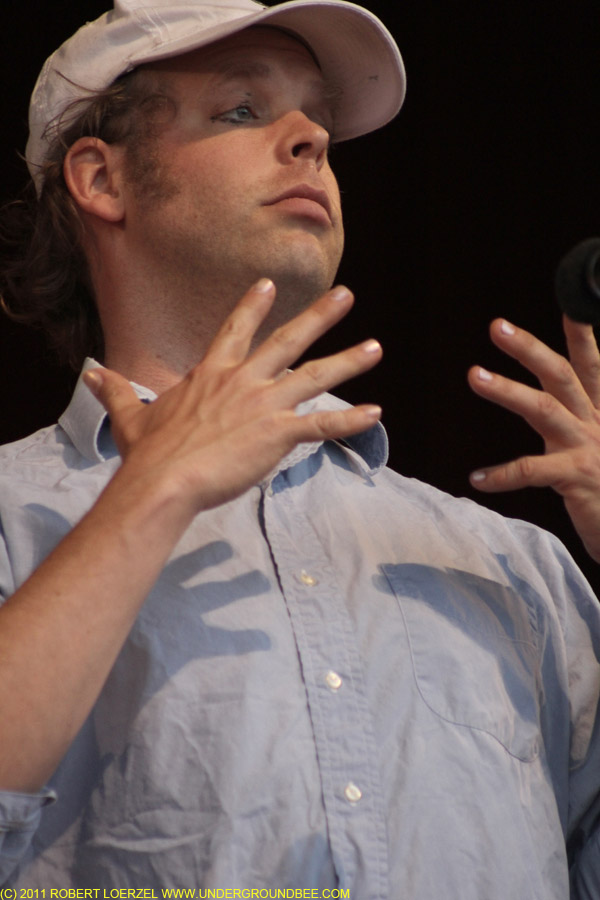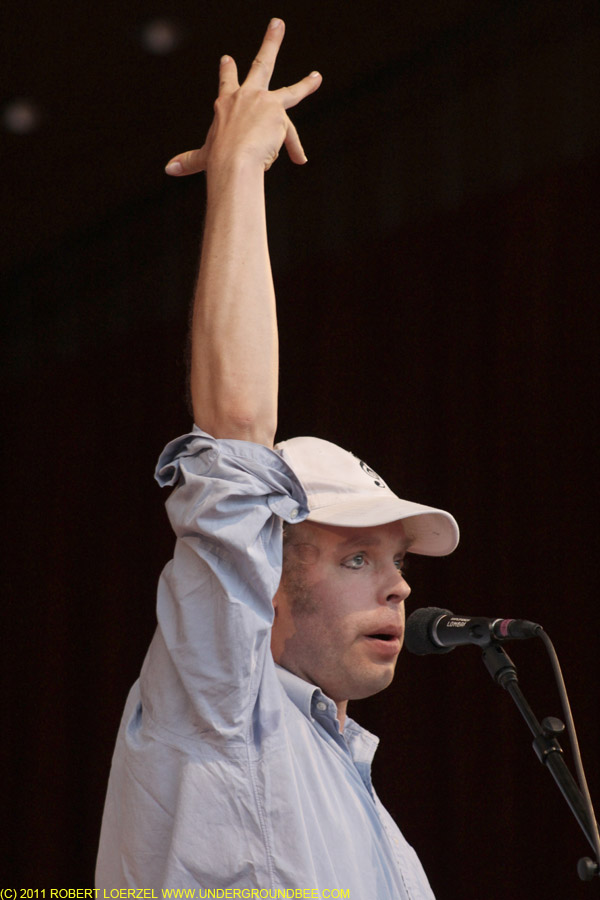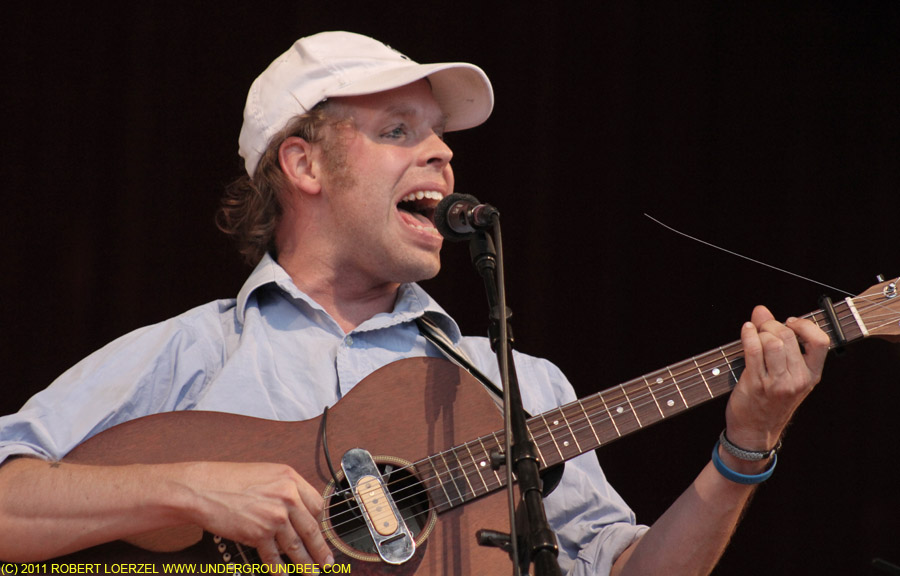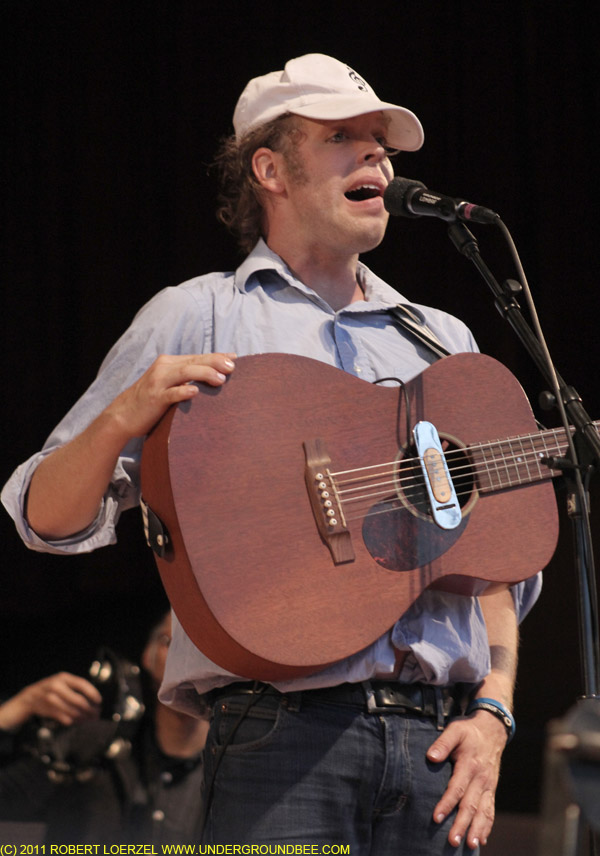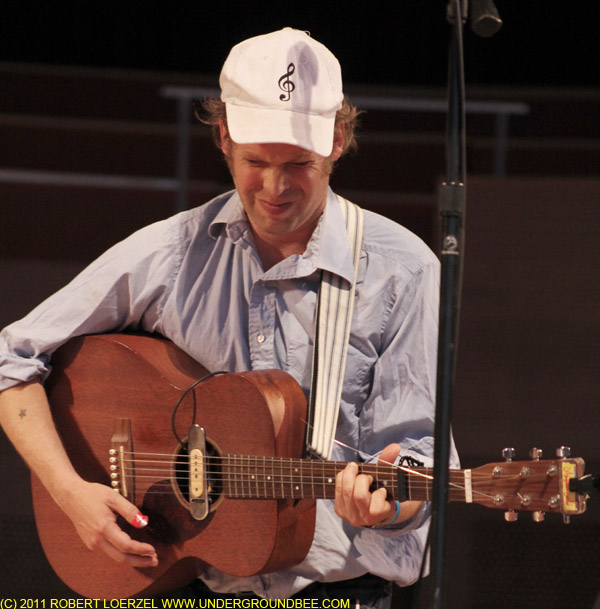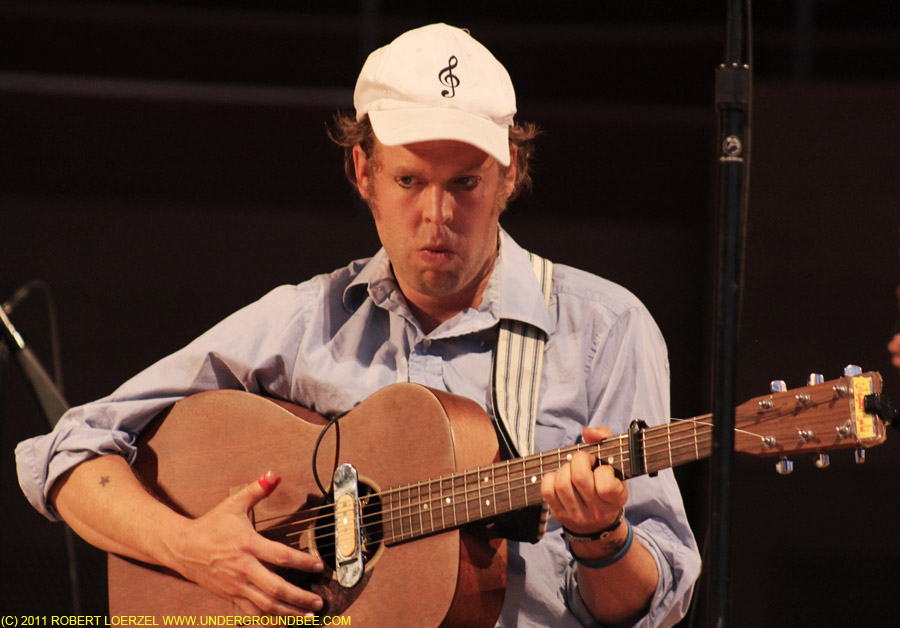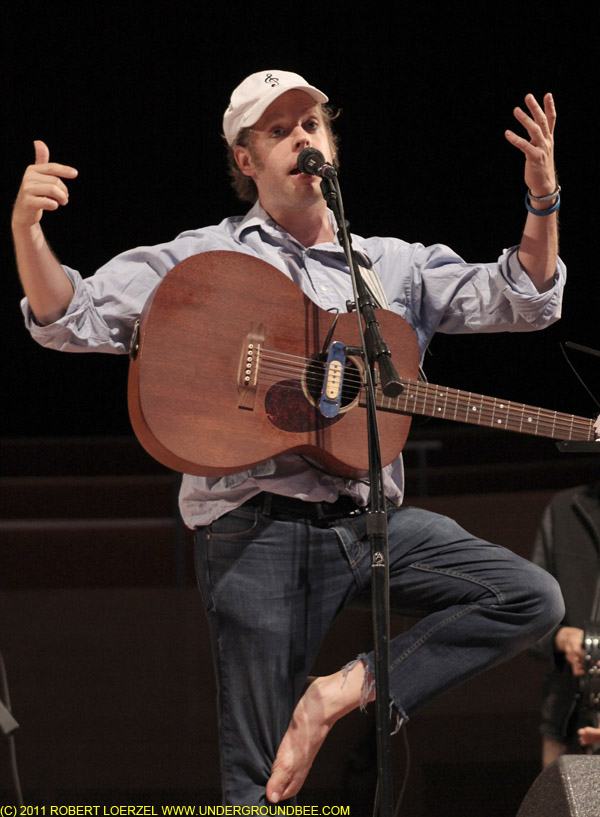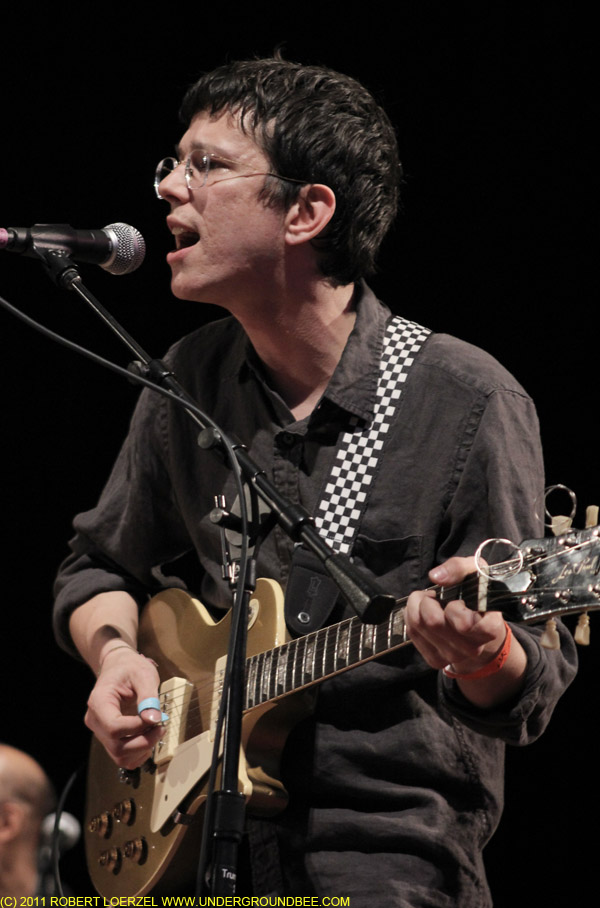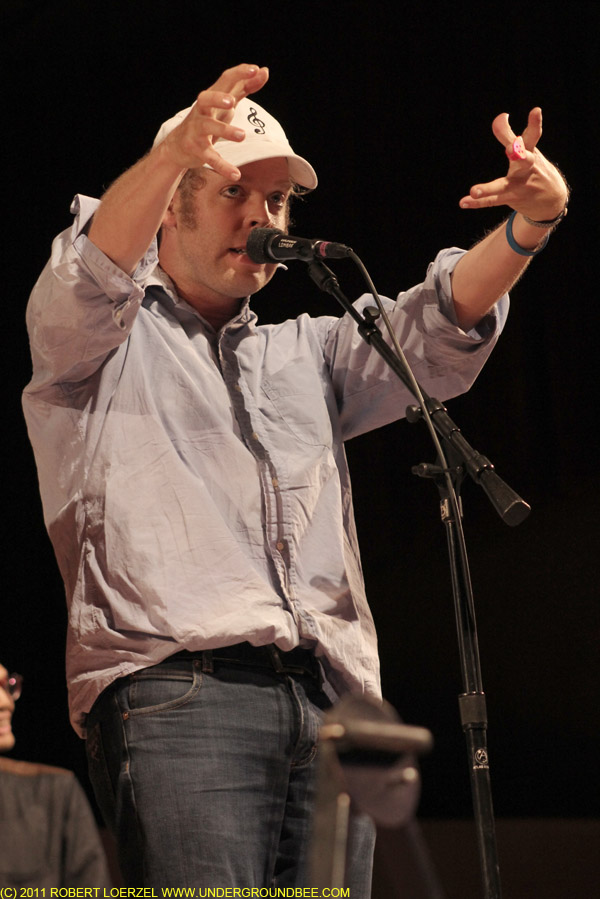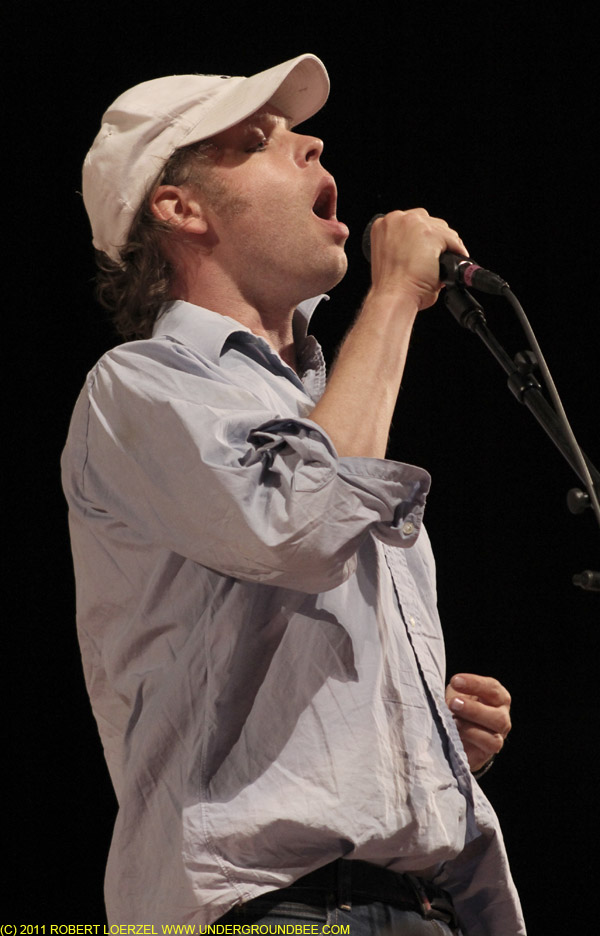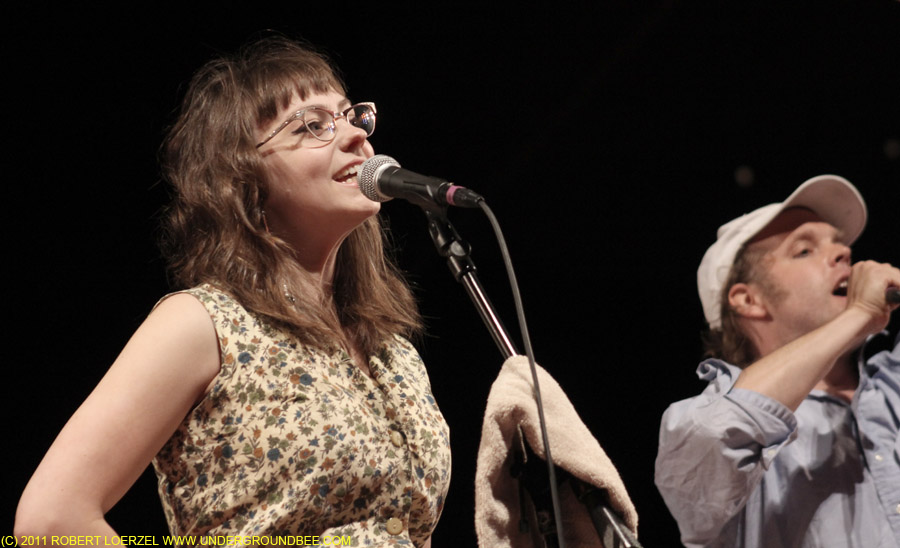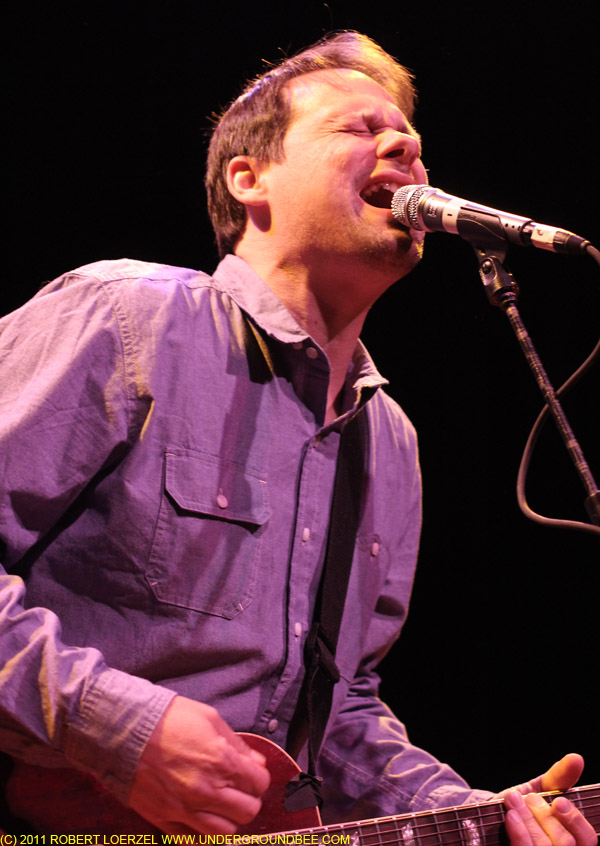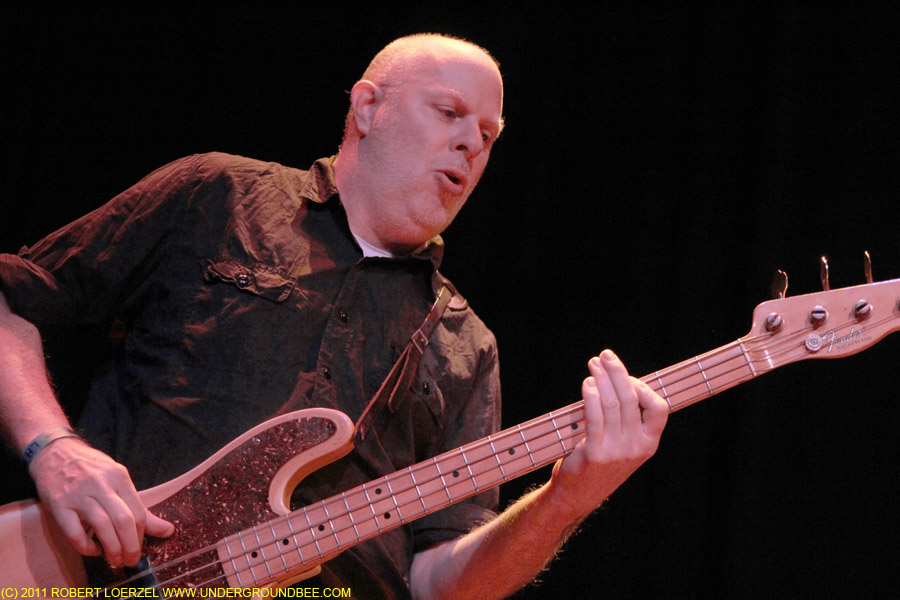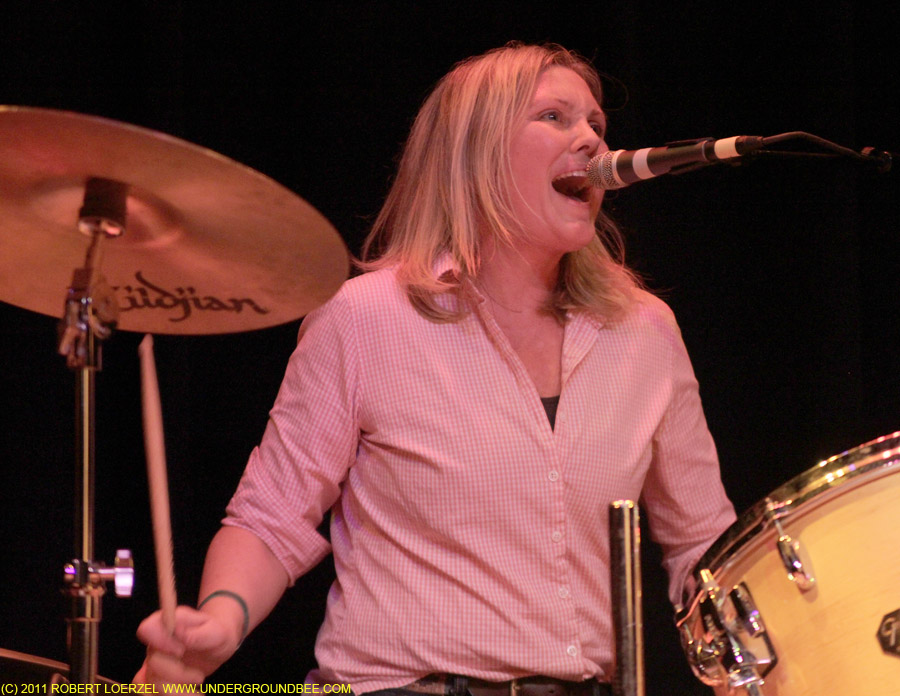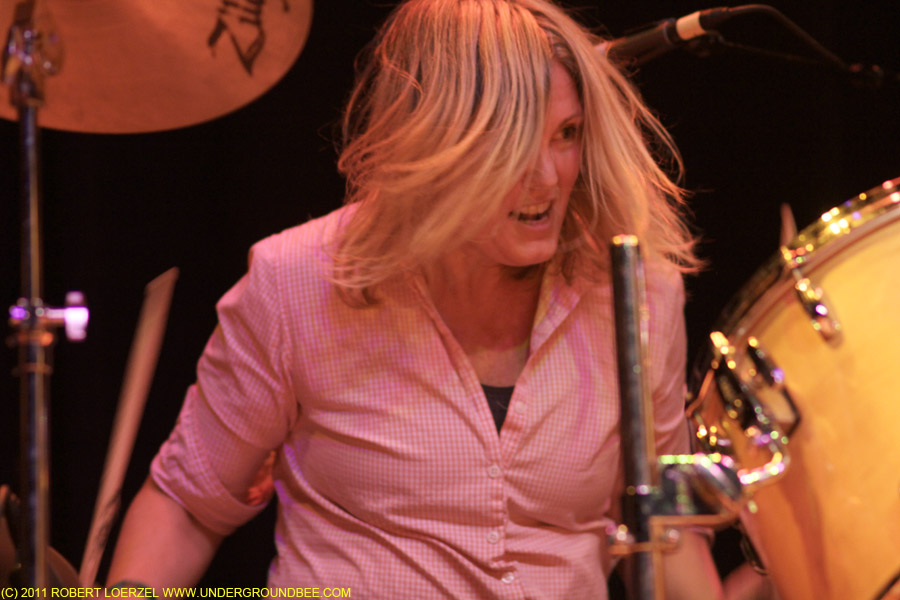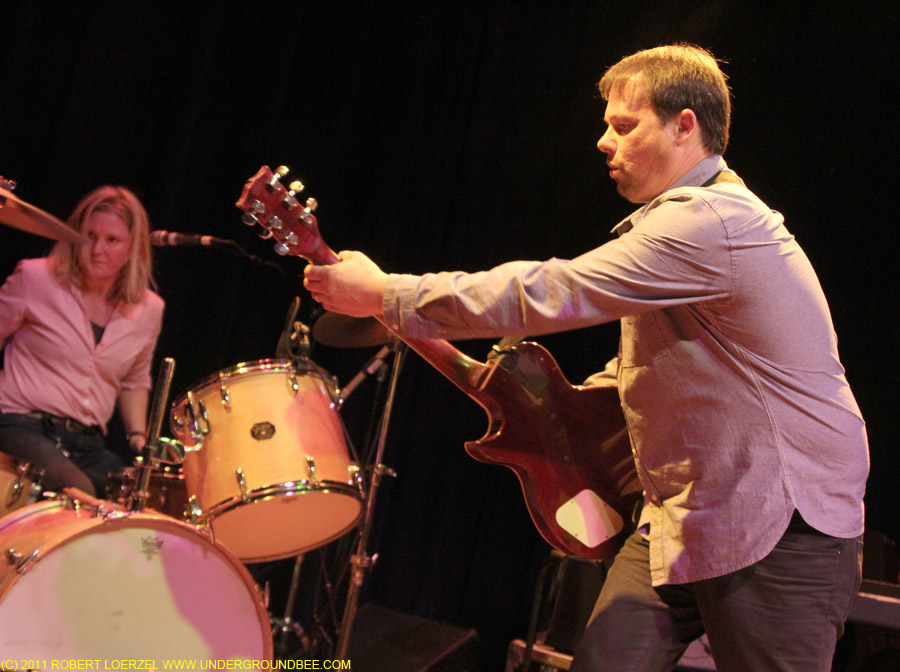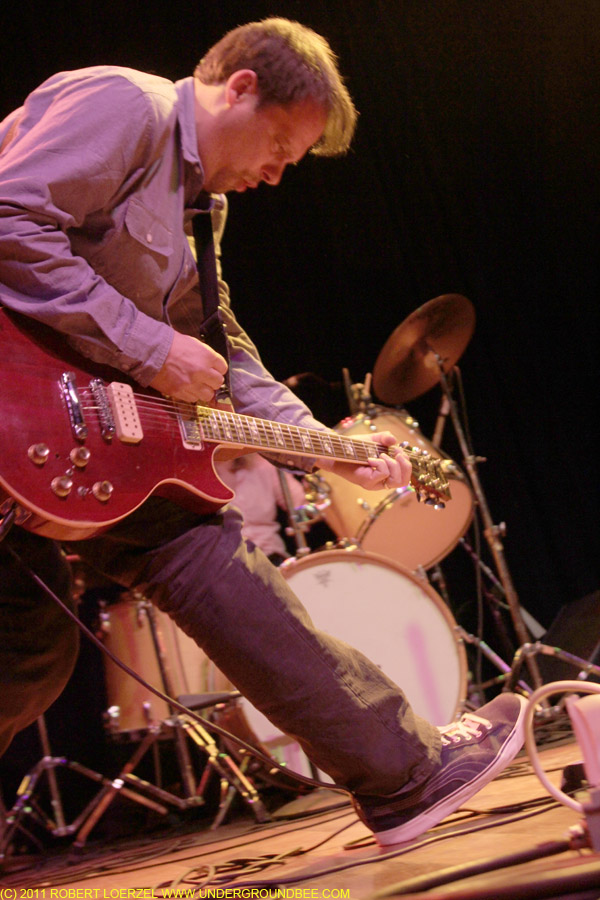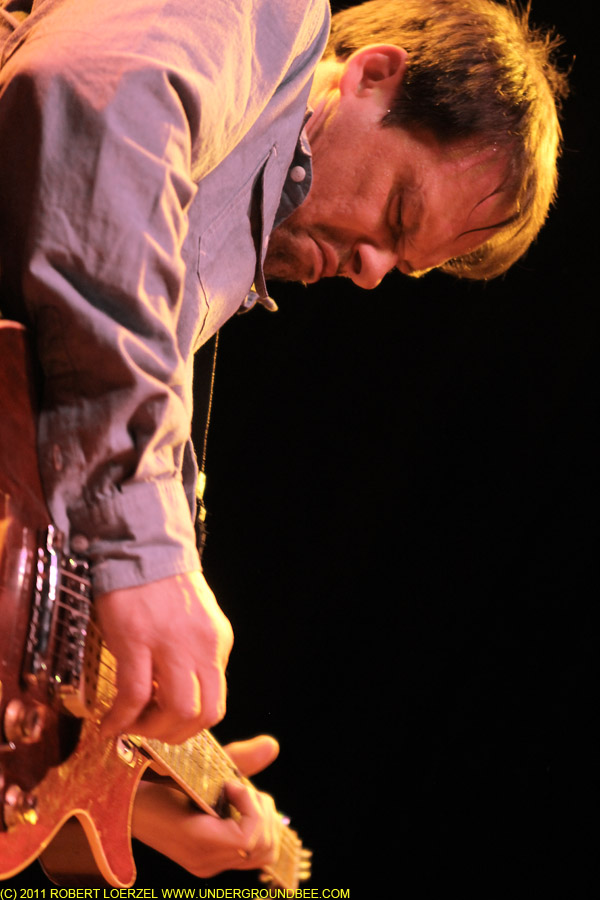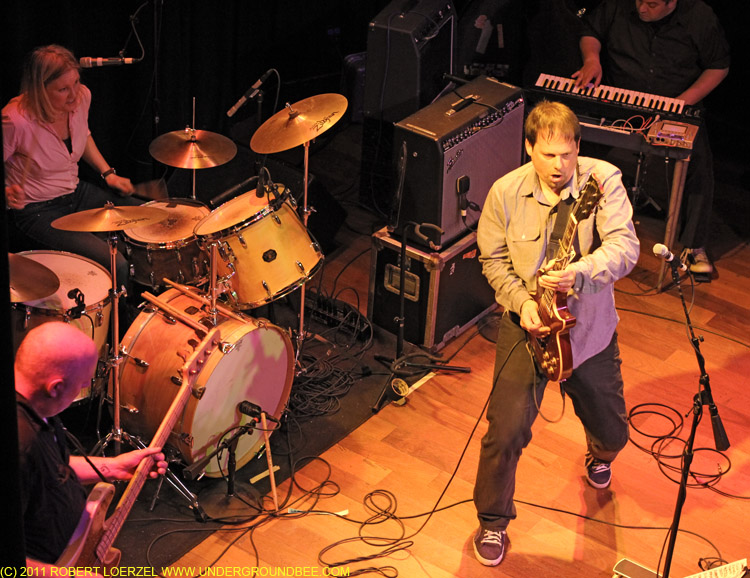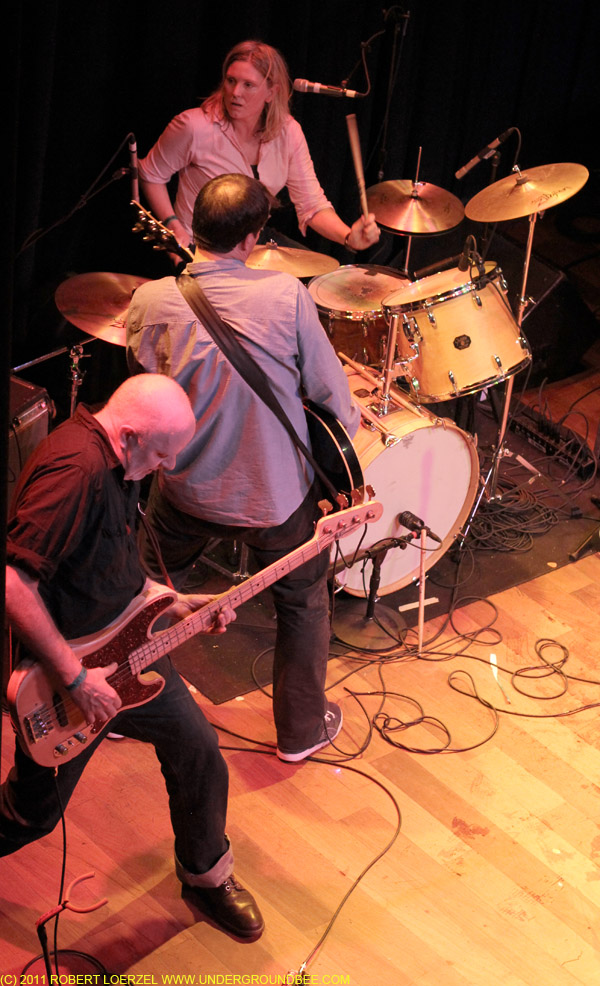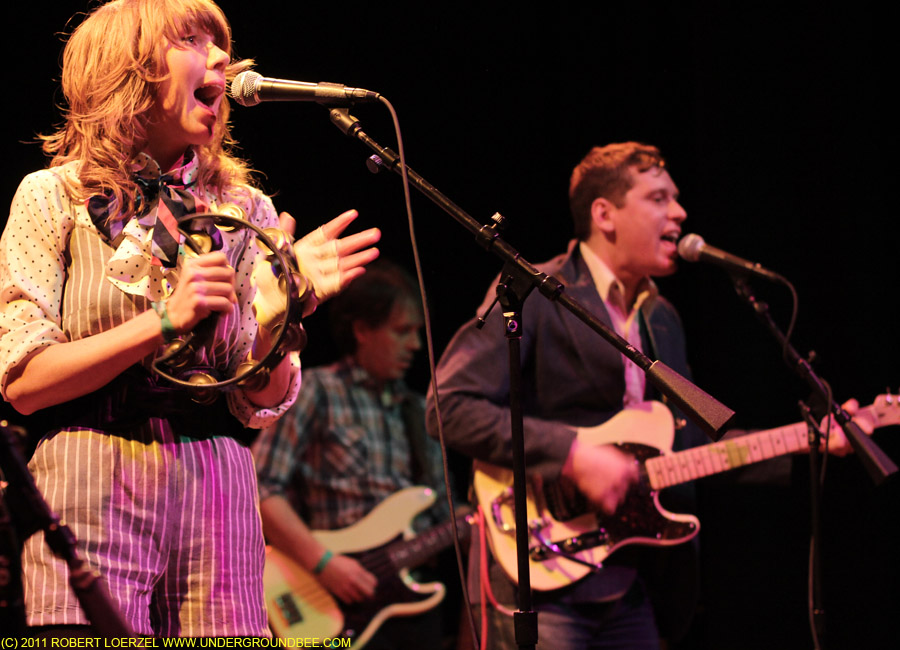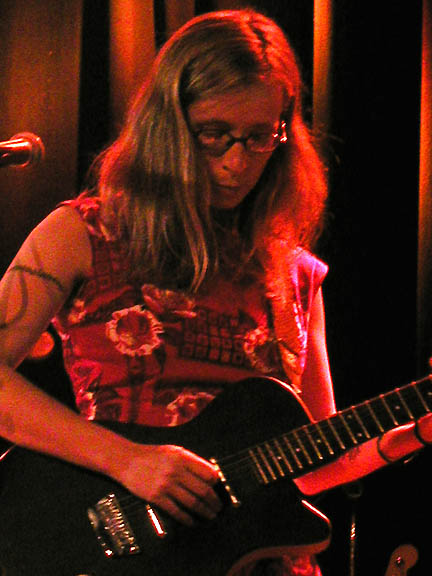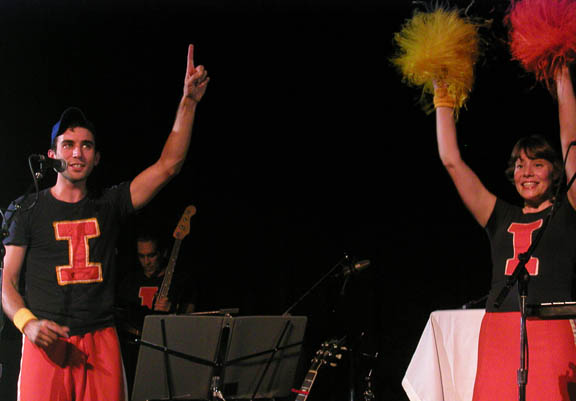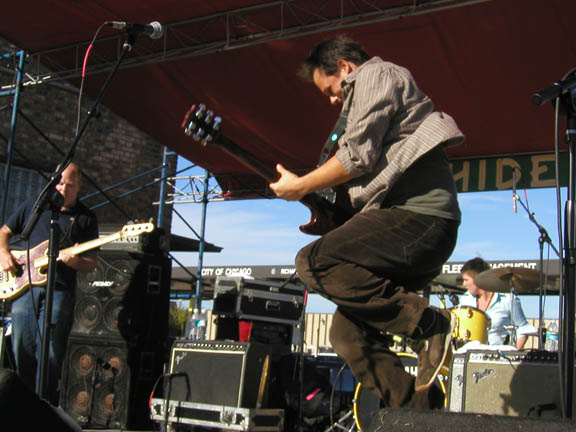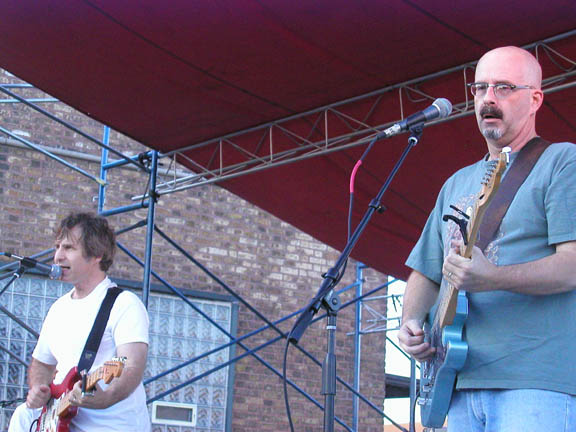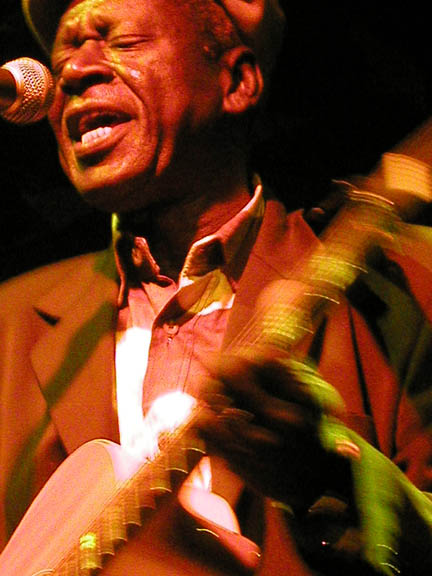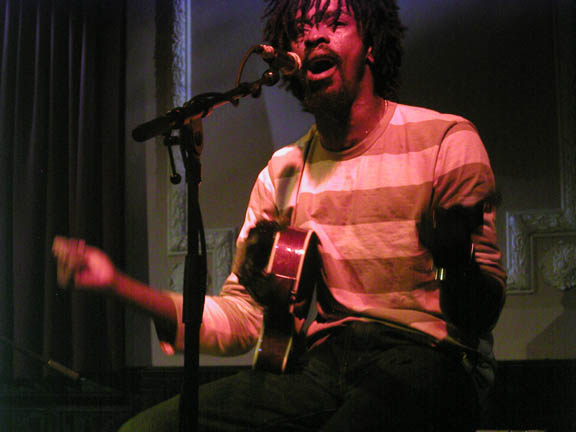The Hideout, one of my favorite music venues, celebrated its 20th anniversary with a daylong mini-festival on Saturday — billed as a “20-Year Reunion.” In truth, the Hideout is much older than just two decades, as the city of Chicago’s cultural historian, Tim Samuelson, told the audience on Saturday in a short spiel about the venue’s history. He said it’s been serving alcohol since around 1919 — probably continuing as an illegal booze joint during the Prohibition Era.
But 20 years ago was when Tim Tuten and his wife, Katie, and their friends, twins Jim and Mike Hinchsliff, took over the Hideout and began transforming it into a friendly gathering place in the midst of a starkly urban landscape. (There’s a parking lot across the street filled with city garbage trucks.) In 2004, I interviewed the Tutens and the Hinchsliff brothers for a Pioneer Press feature about the Hideout. Back then, I wrote:
After eight years of running the Hideout, the owners still look on the experience like a fun adventure from their childhood days in the suburbs. “Kids used to make forts,” Tim Tuten says. “We looked at this as a fort or a clubhouse.”
That’s as true as it ever was. The Hideout is a sort of playground for musicians and their fans, and it also hosts comedy and literary events, political discussions … you name it. The genre of music most often associated with the Hideout is alt-country, but its concert schedule extends way beyond twang, including everything from experimental jazz to hard rock. And I’ve always sensed a welcoming vibe in its cozy space. Even on those rare nights when I don’t know a lot of people in the crowd, it just feels like a place where it’s easy to strike up a conversation with some of your fellow music fans.
The venue hosted an outdoor festival called the Hideout Block Party during many years, sometimes on Wabansia Street in front of the bar, sometimes taking over a bigger space in that garbage-truck parking lot. Last year, there was no Block Party. And this year’s event was pulled together somewhat belatedly. It turned out to be a smaller-scale even than the festival was in some years. There was just a small stage in front of the bar, and admission was a $20 donation. The lineup was filled with artists who have been regulars and favorites at the Hideout over the past 20 years. There was no need to bring in any additional big-name stars.
I did not see every single minute of Saturday’s party (my excuse is that I was recovering from sitting through the 15-hour Ragamala concert over the previous night). Early in the afternoon, I missed Plastic Crimewave Vision Celestial Guitarkestra, a “Late, Late Breakfast Pancake Brunch” and the Girl Talk interview show; and at the end of the night, I missed indoor performances by Devil in a Woodpile and the Lawrence Peters Outfit. But the eight hours of music I did catch were a fun time, filled with good spirit. It culminated with a lively set by Eleventh Dream Day, who closed with a cover of Lovin Spoonful’s “Summer in the City.” (See my video of the song here.)
Happy 20th birthday to the Hideout — and may you outlive all the changes that may be coming in the neighborhood. Chicago needs you.
